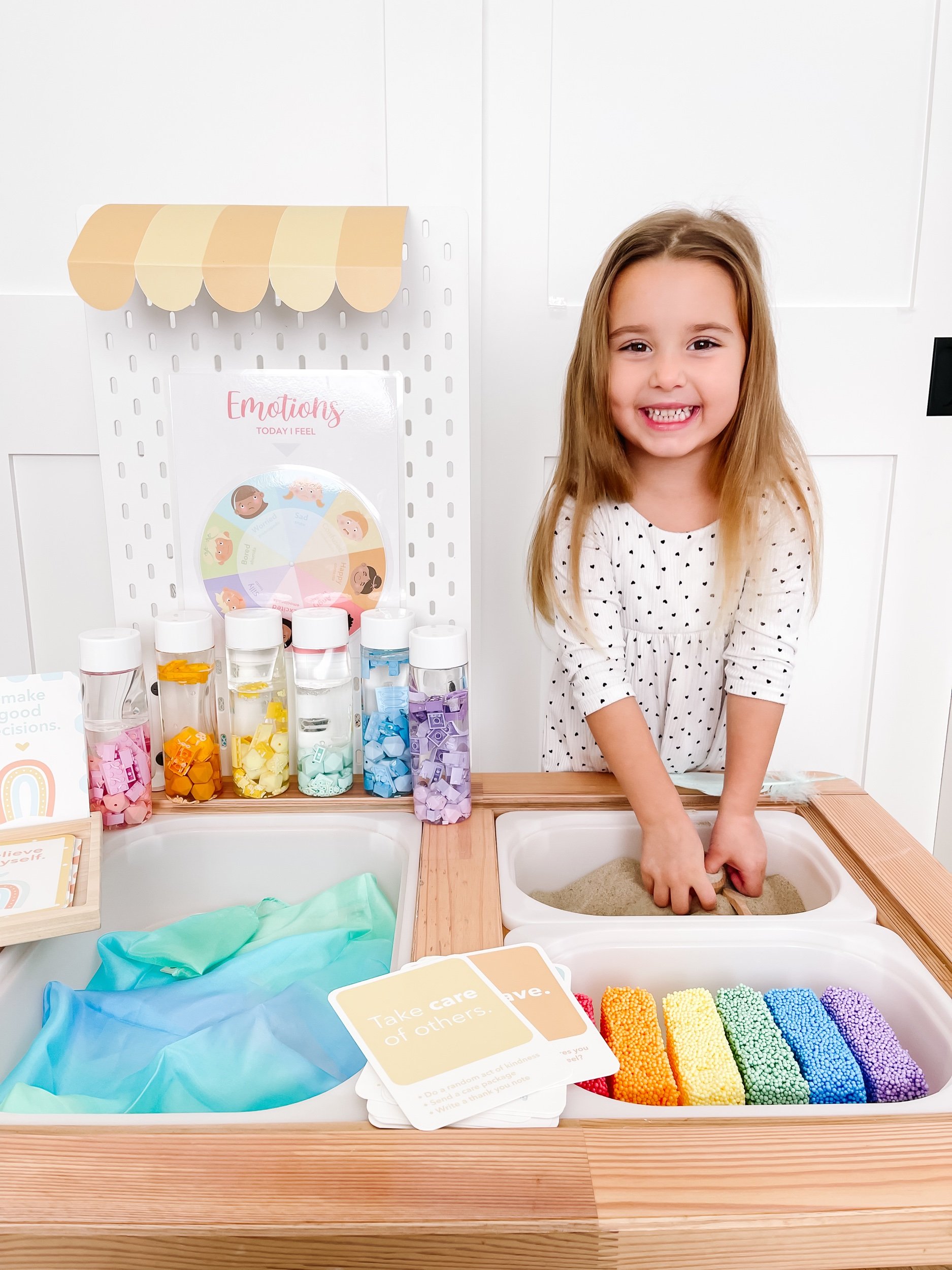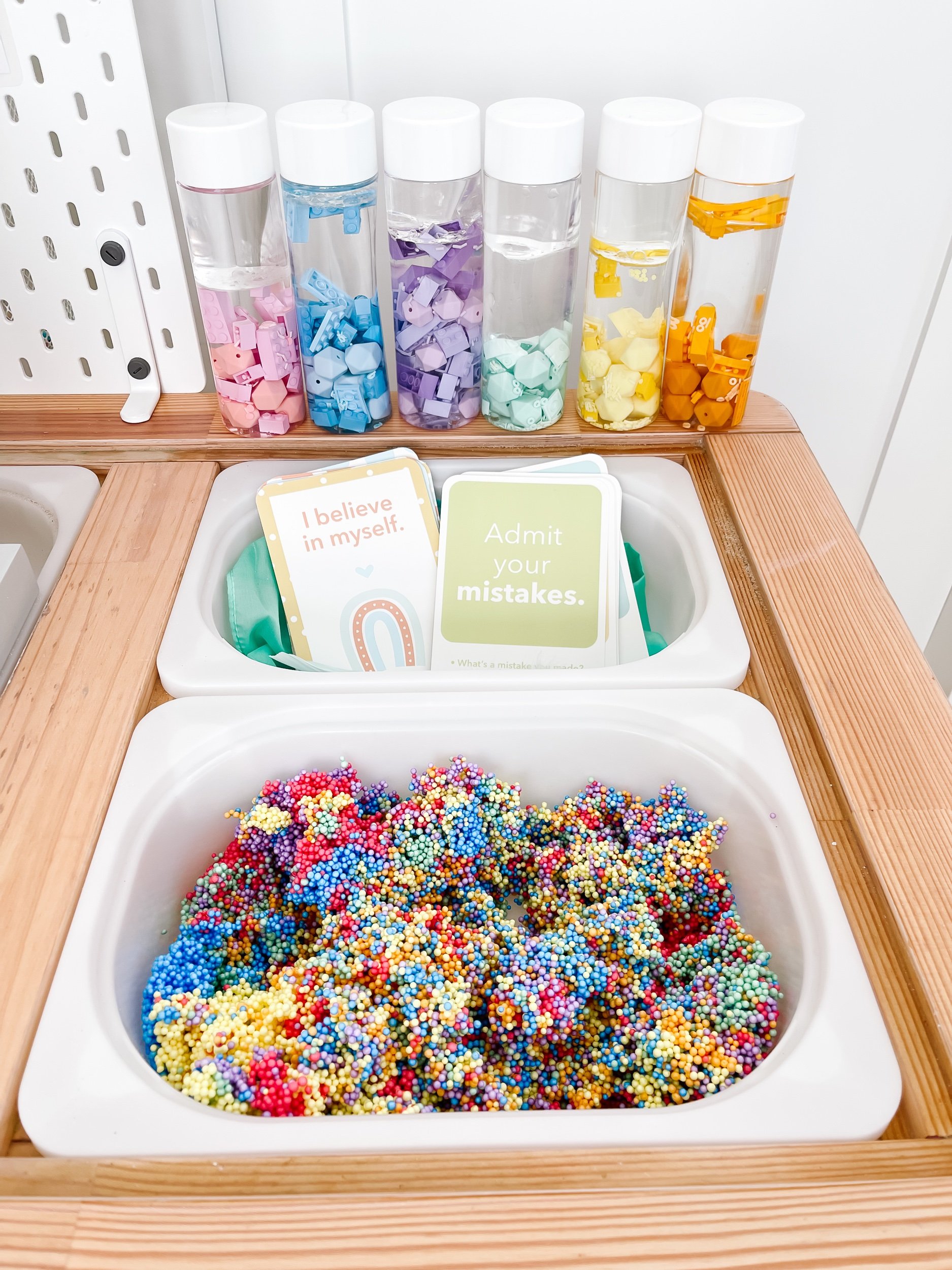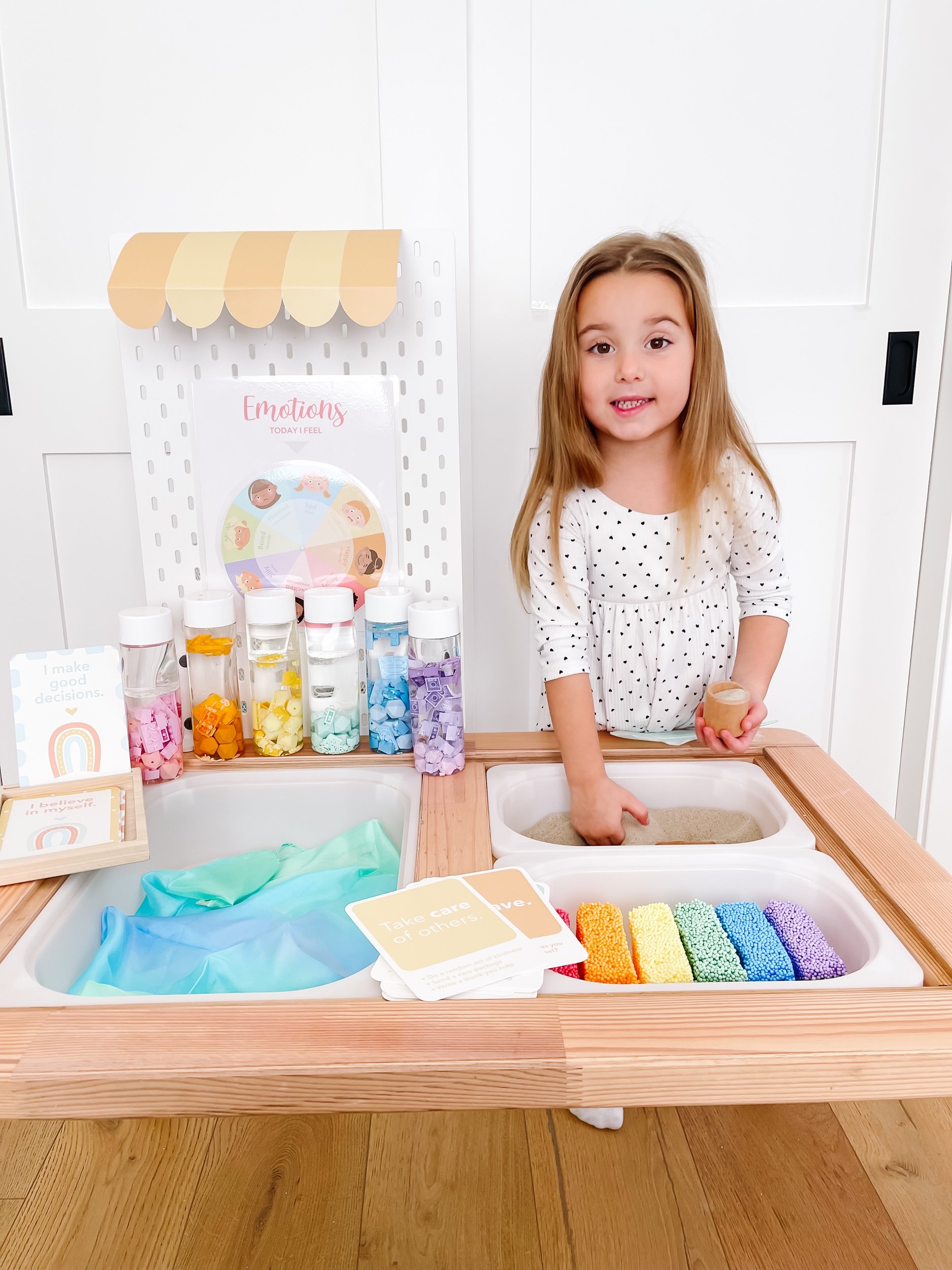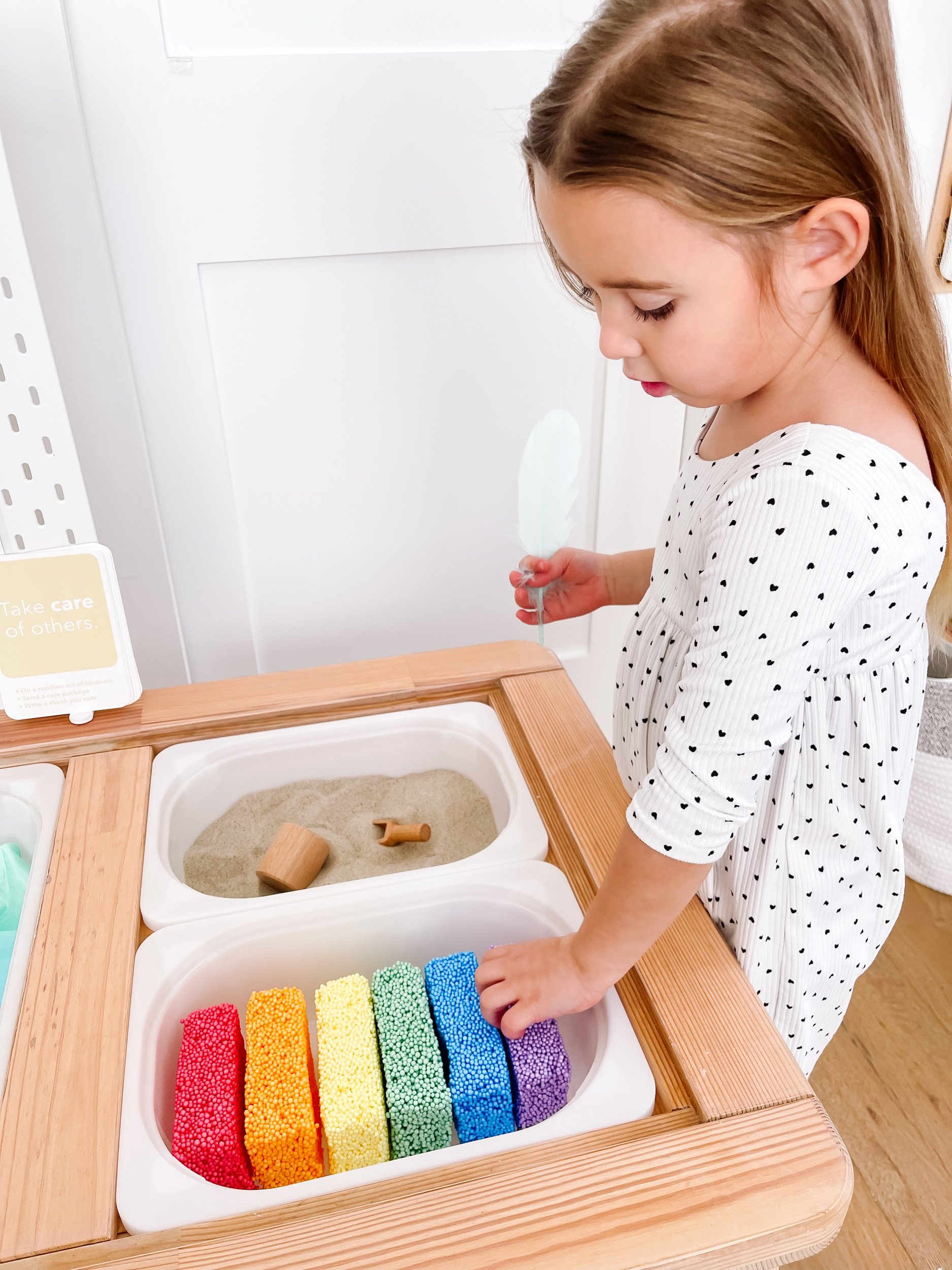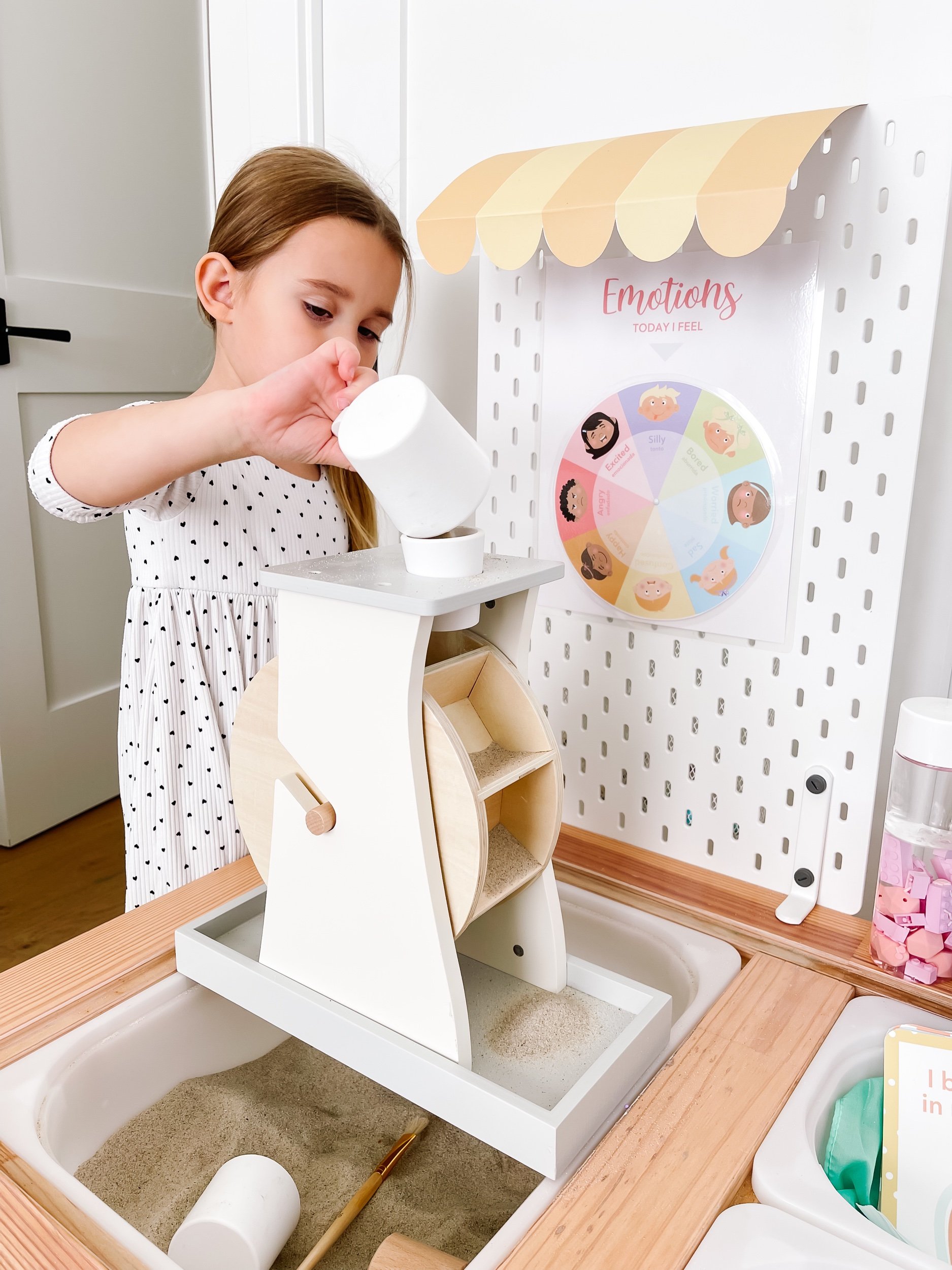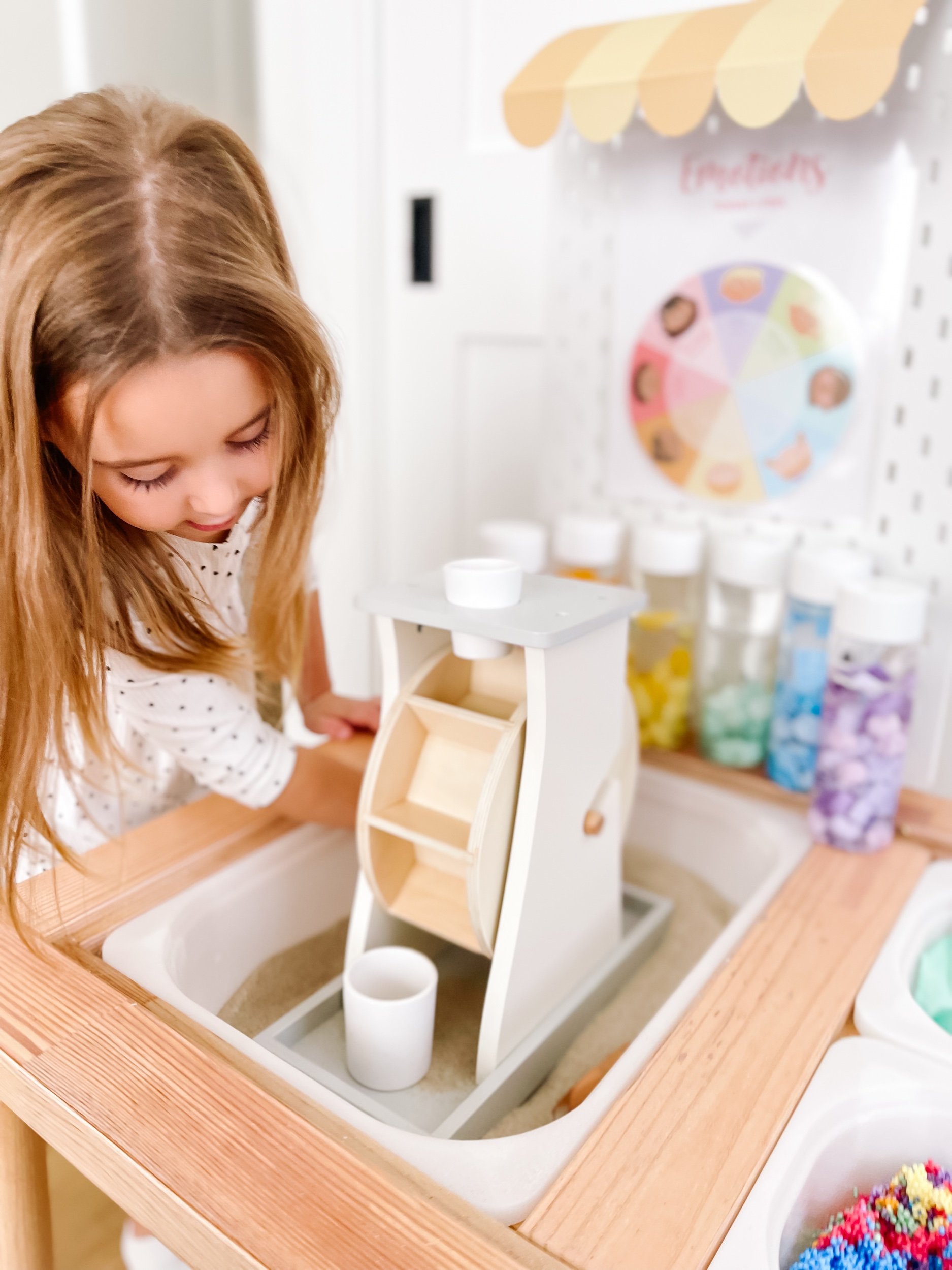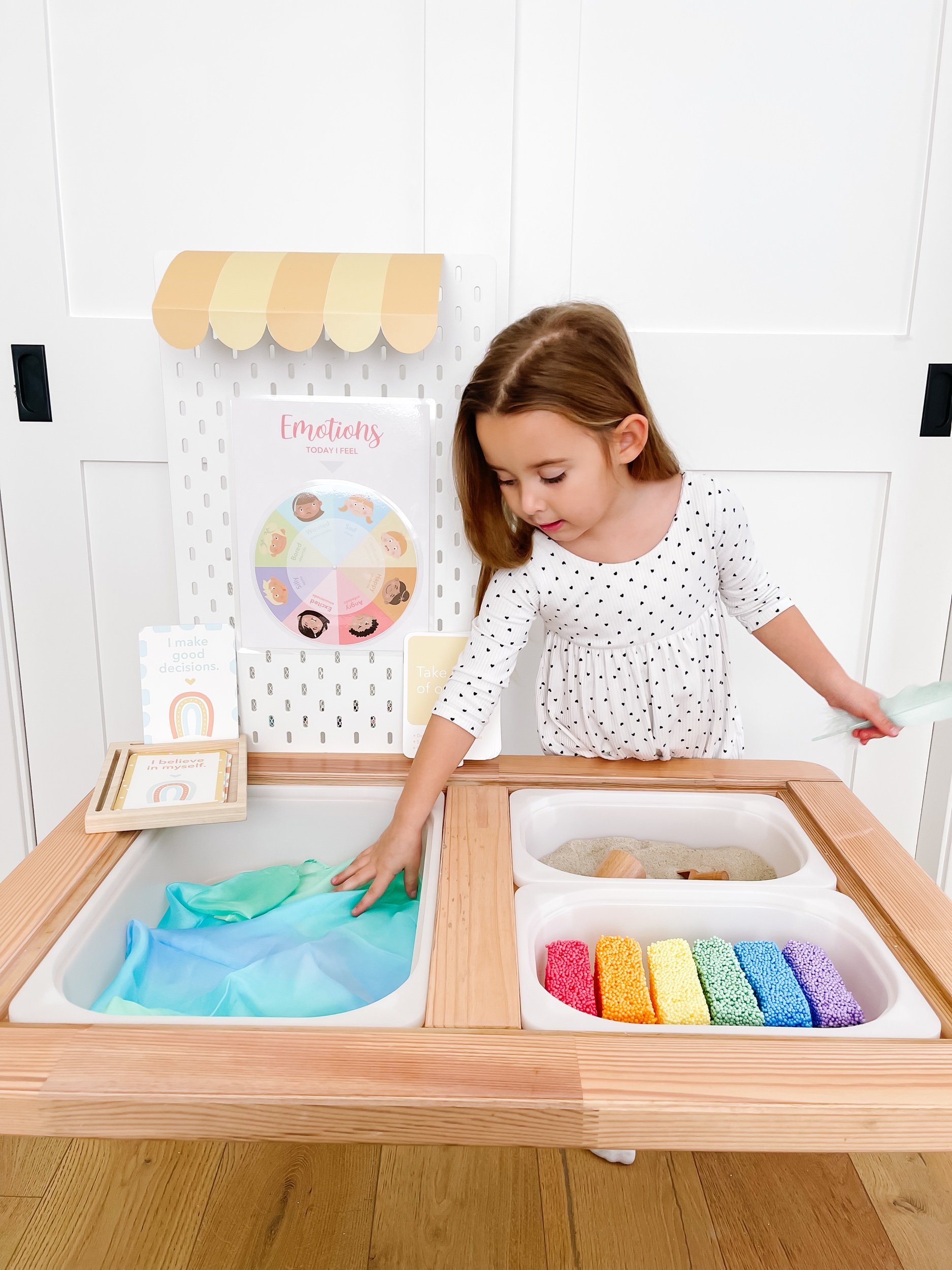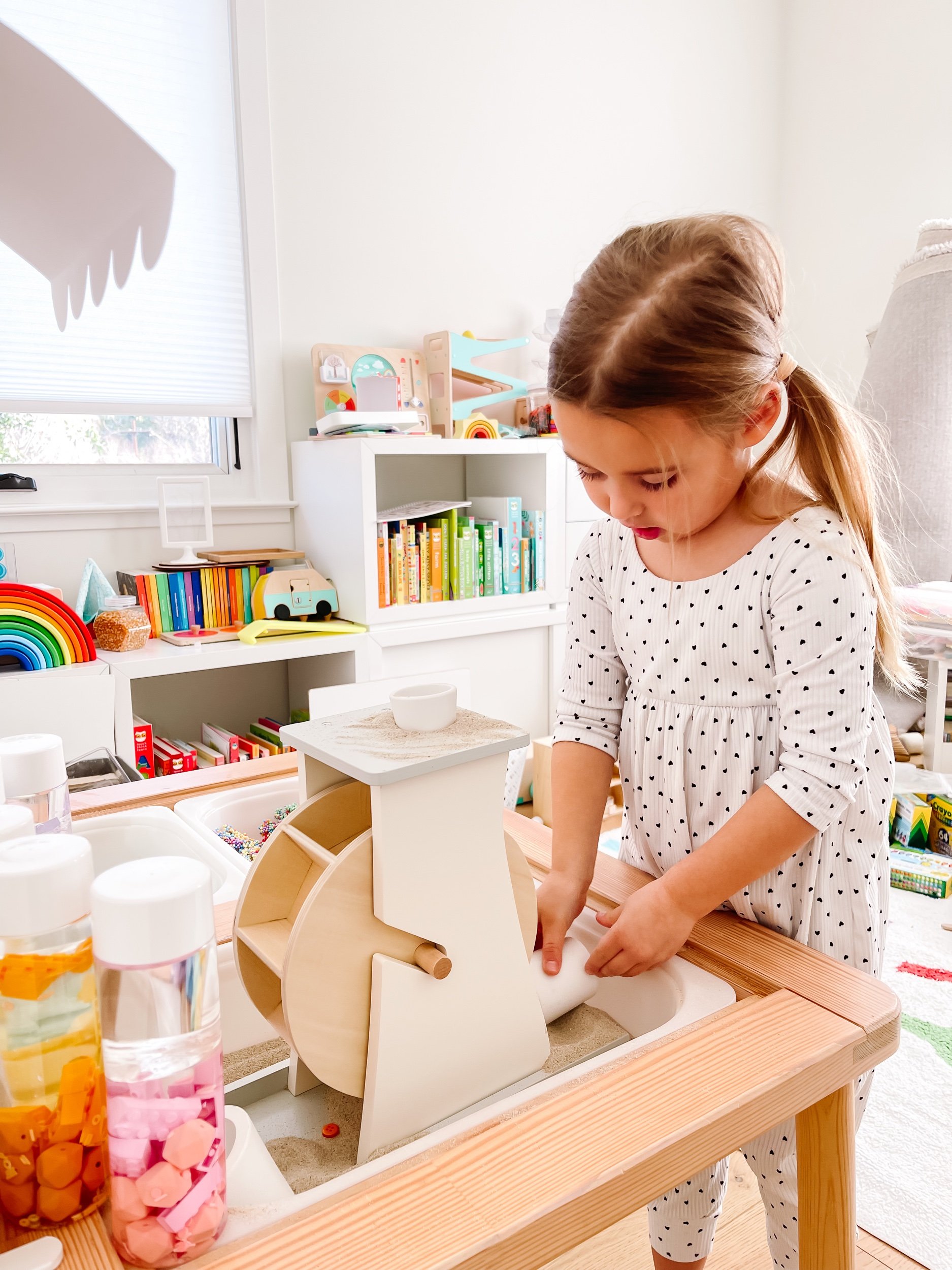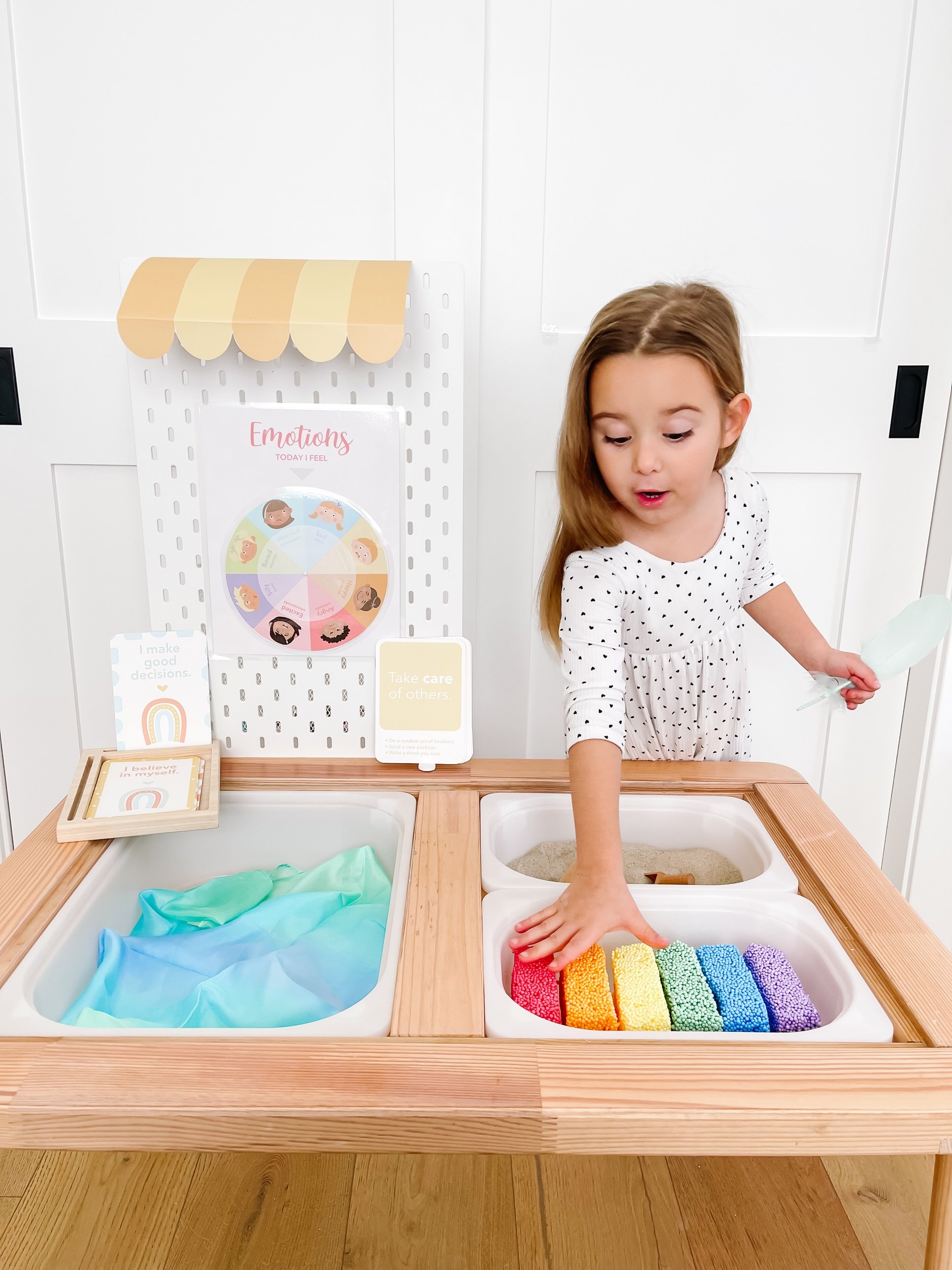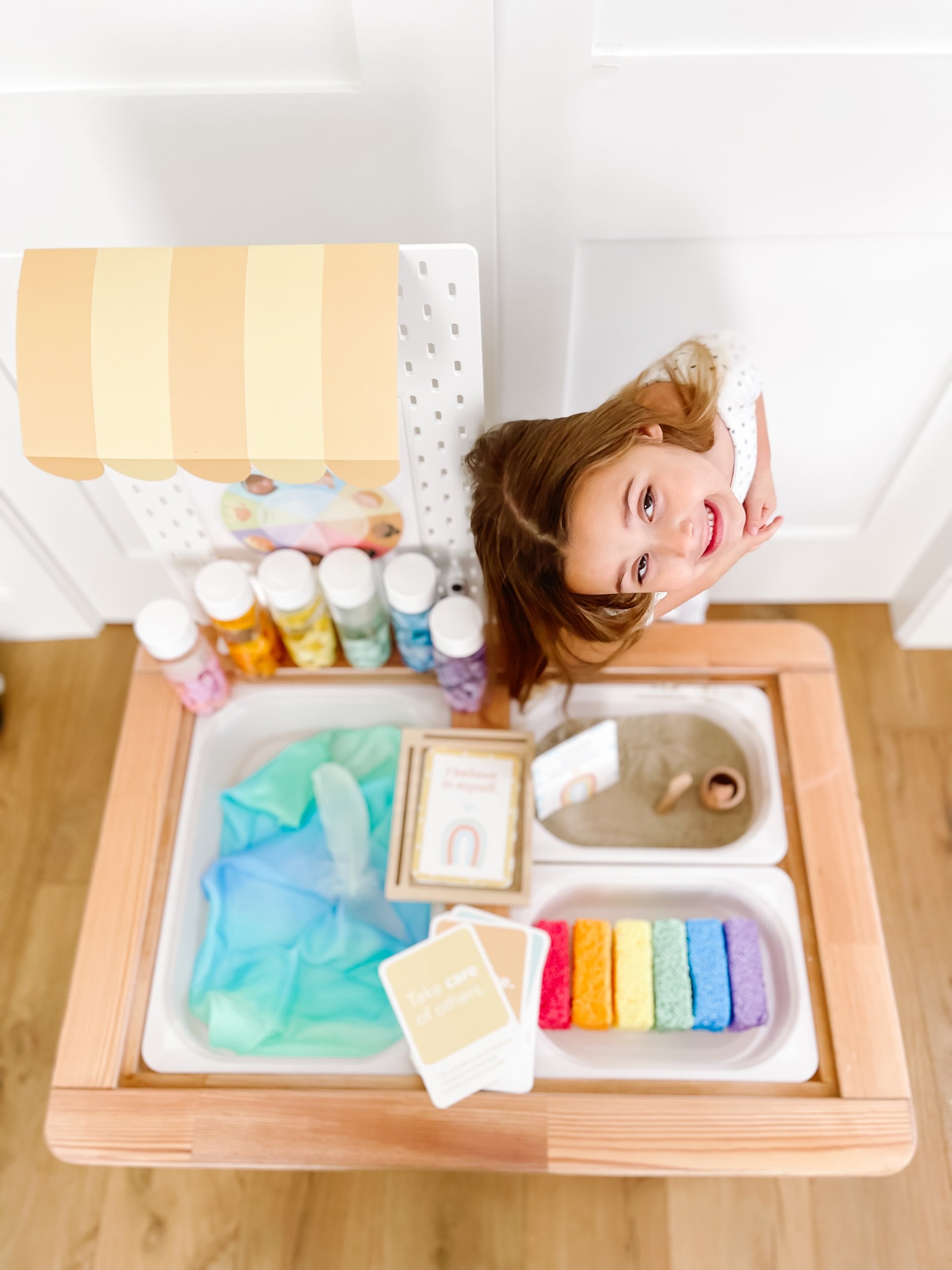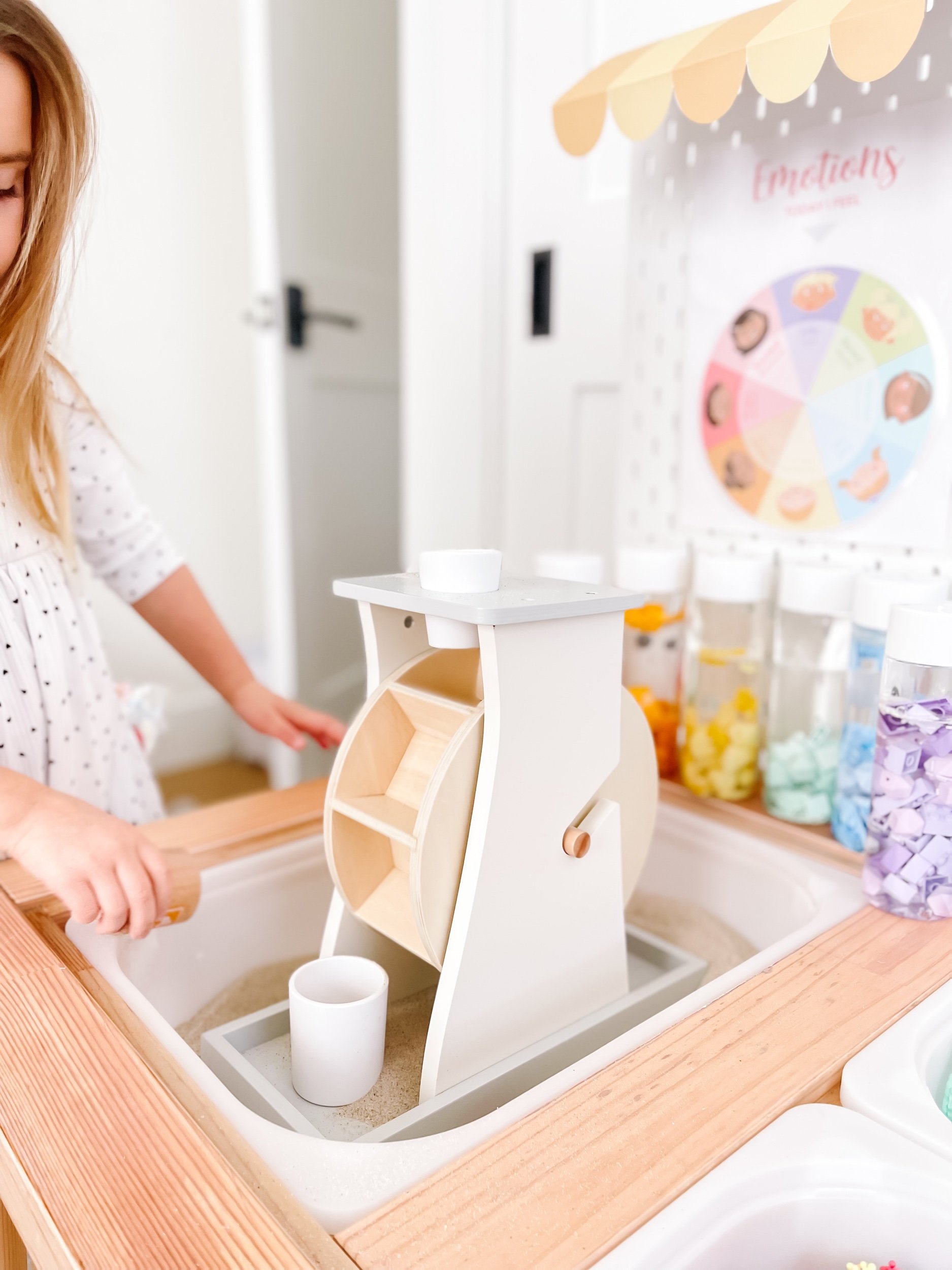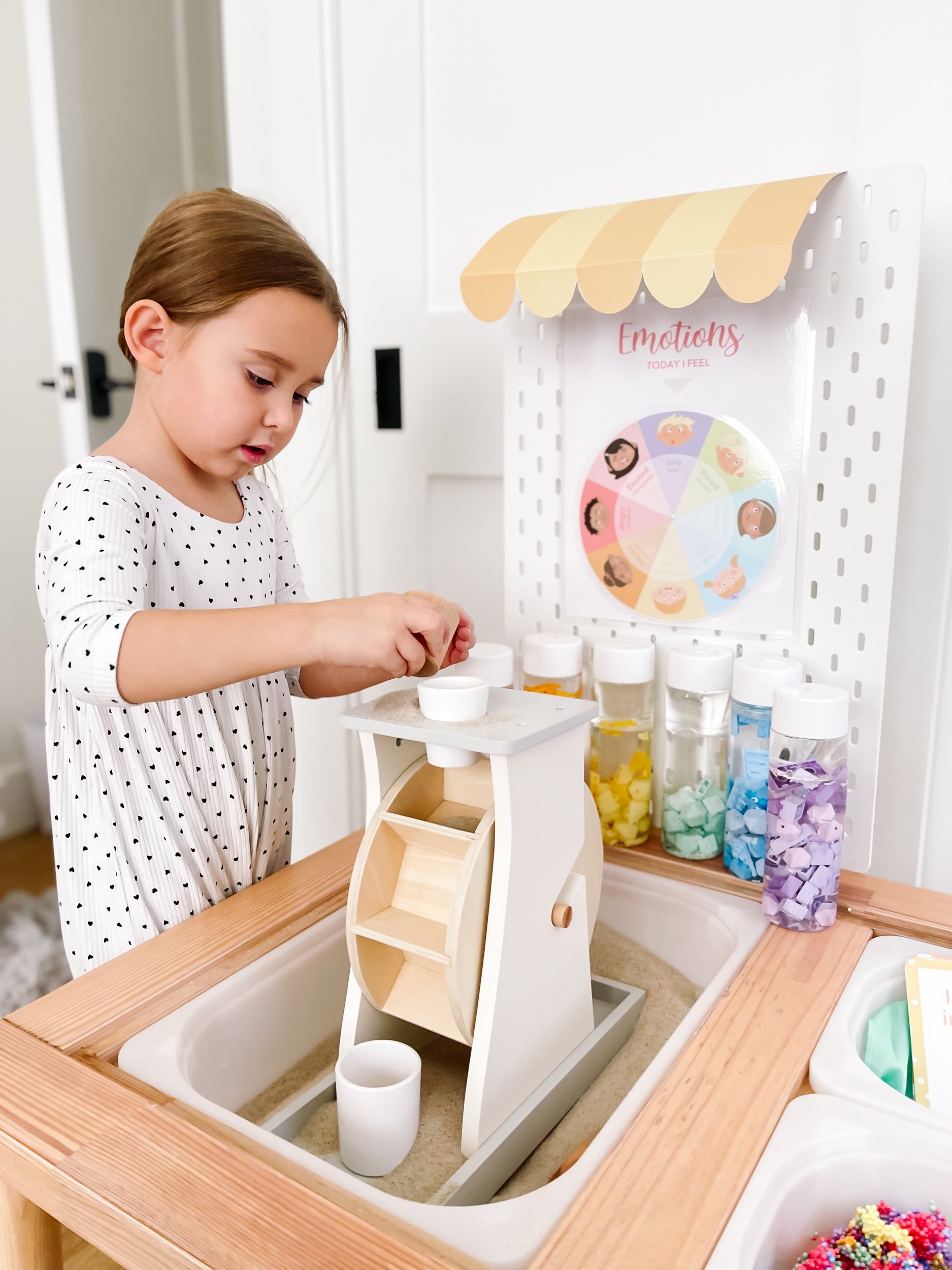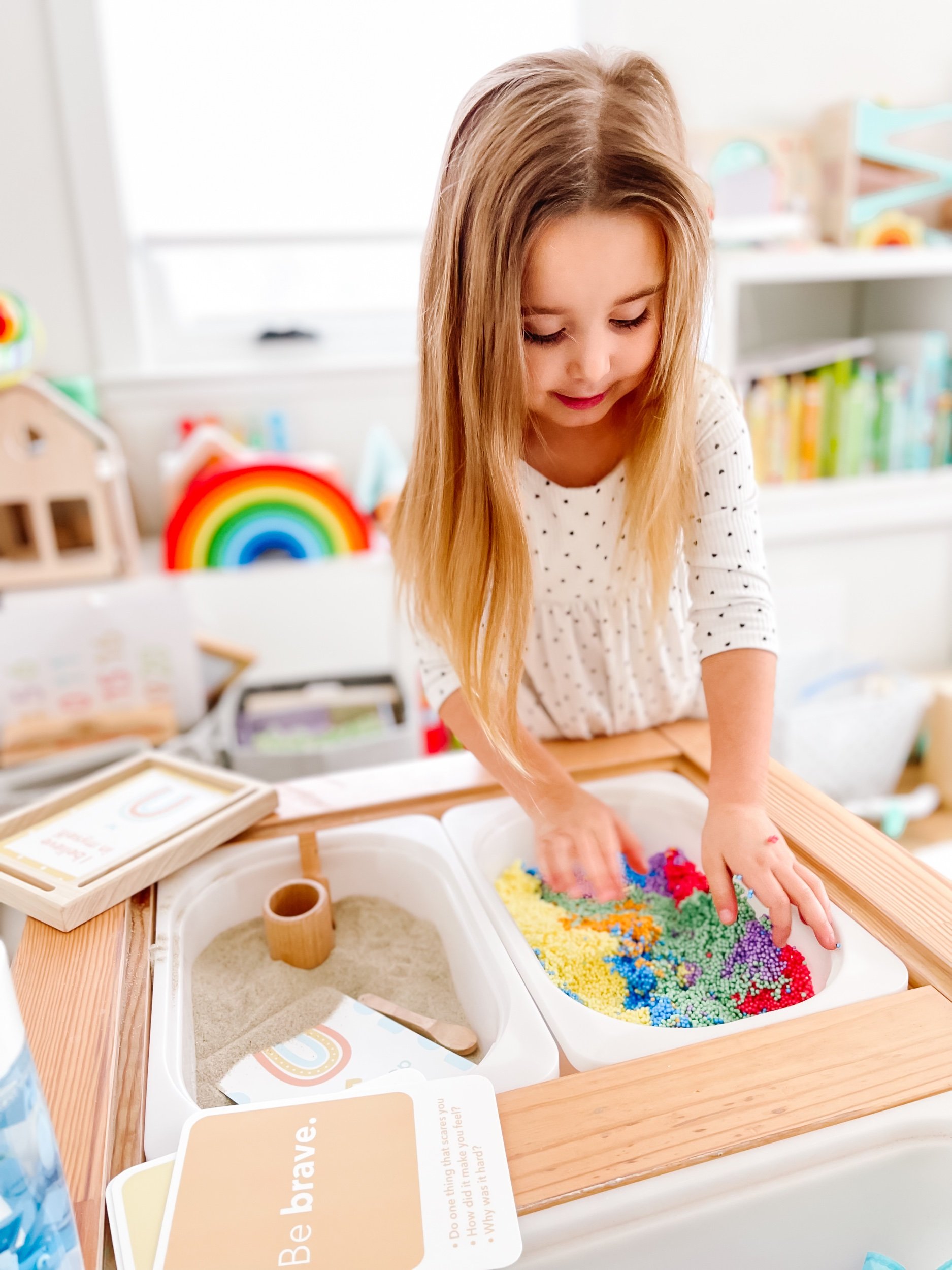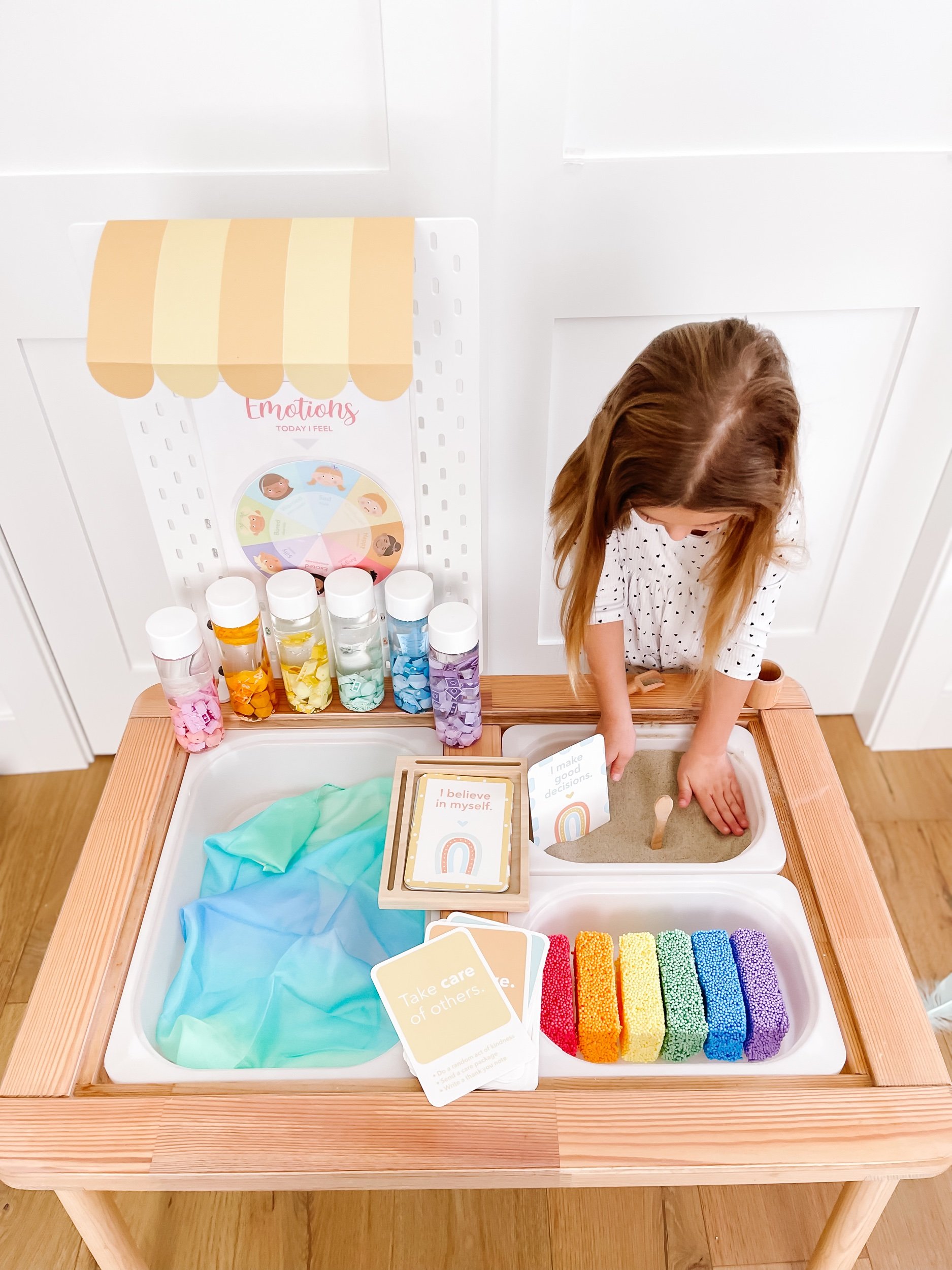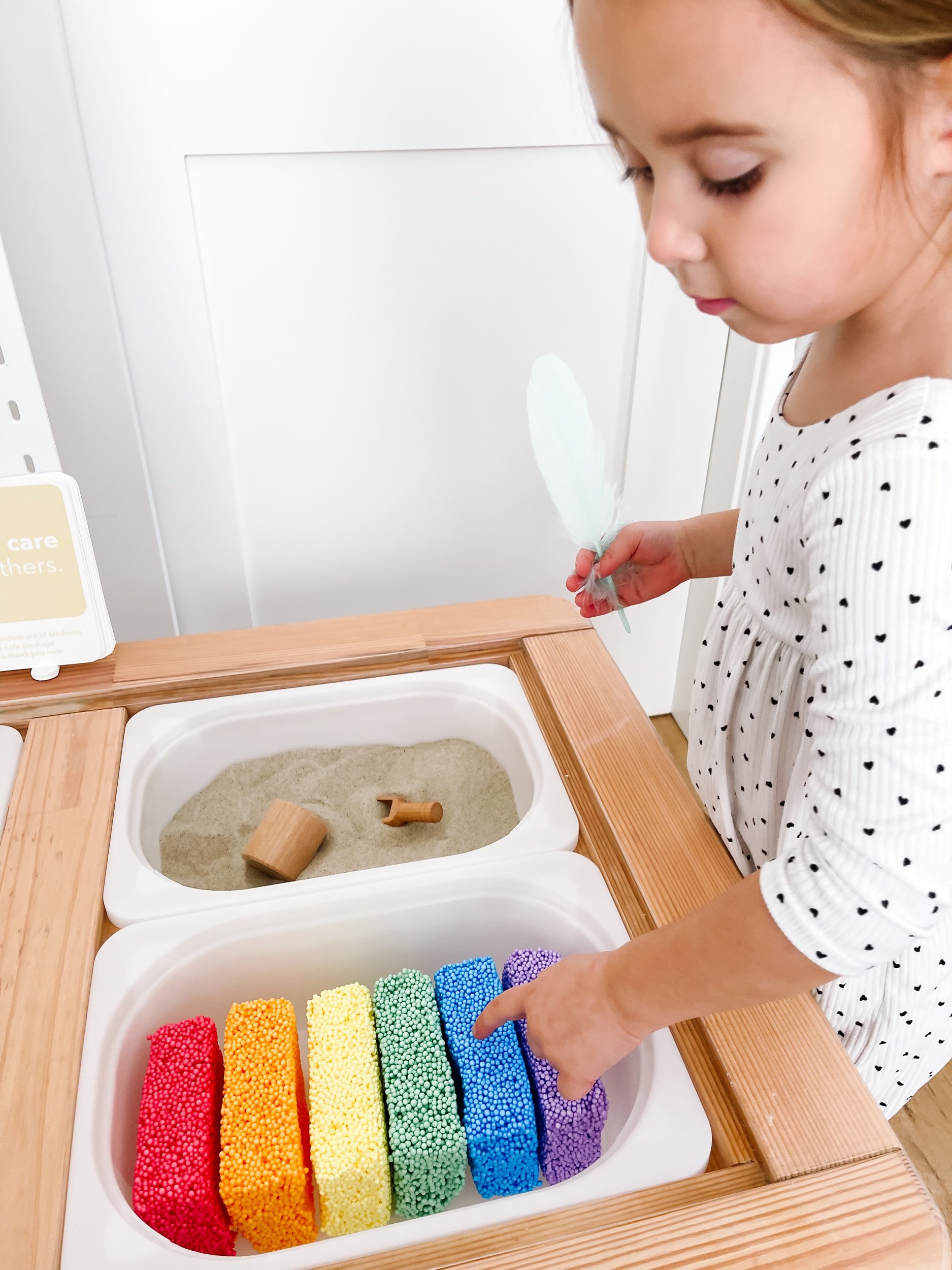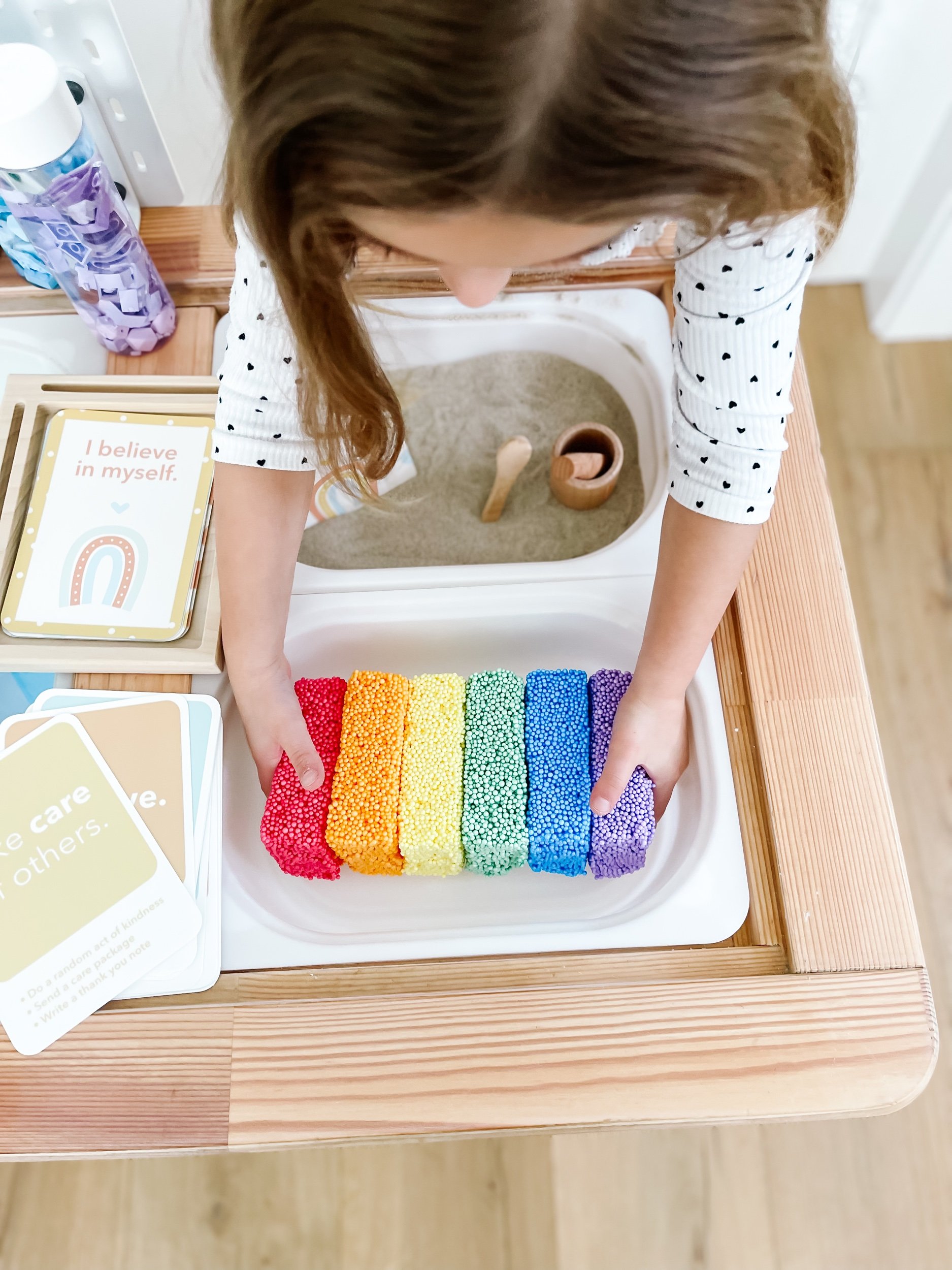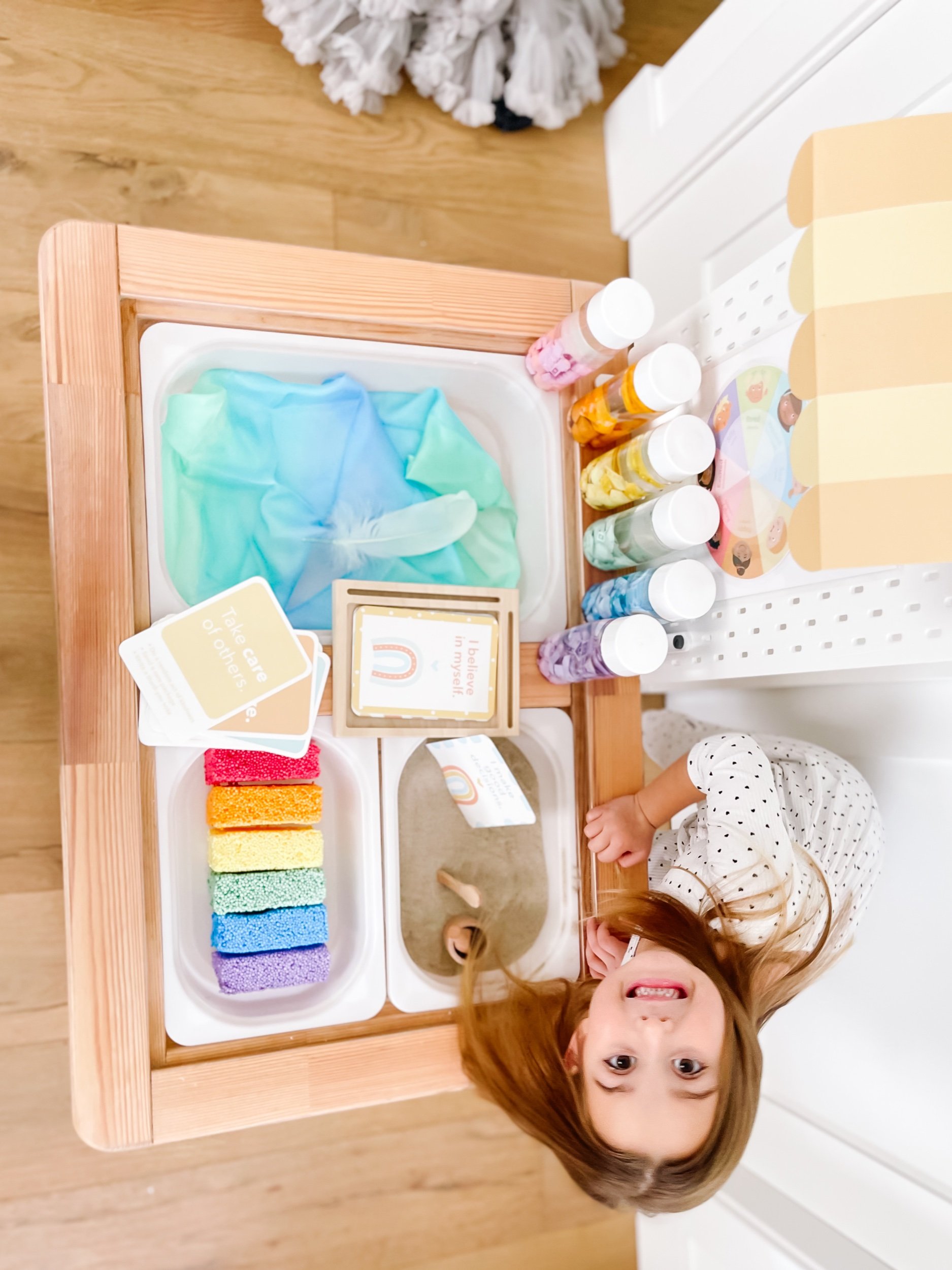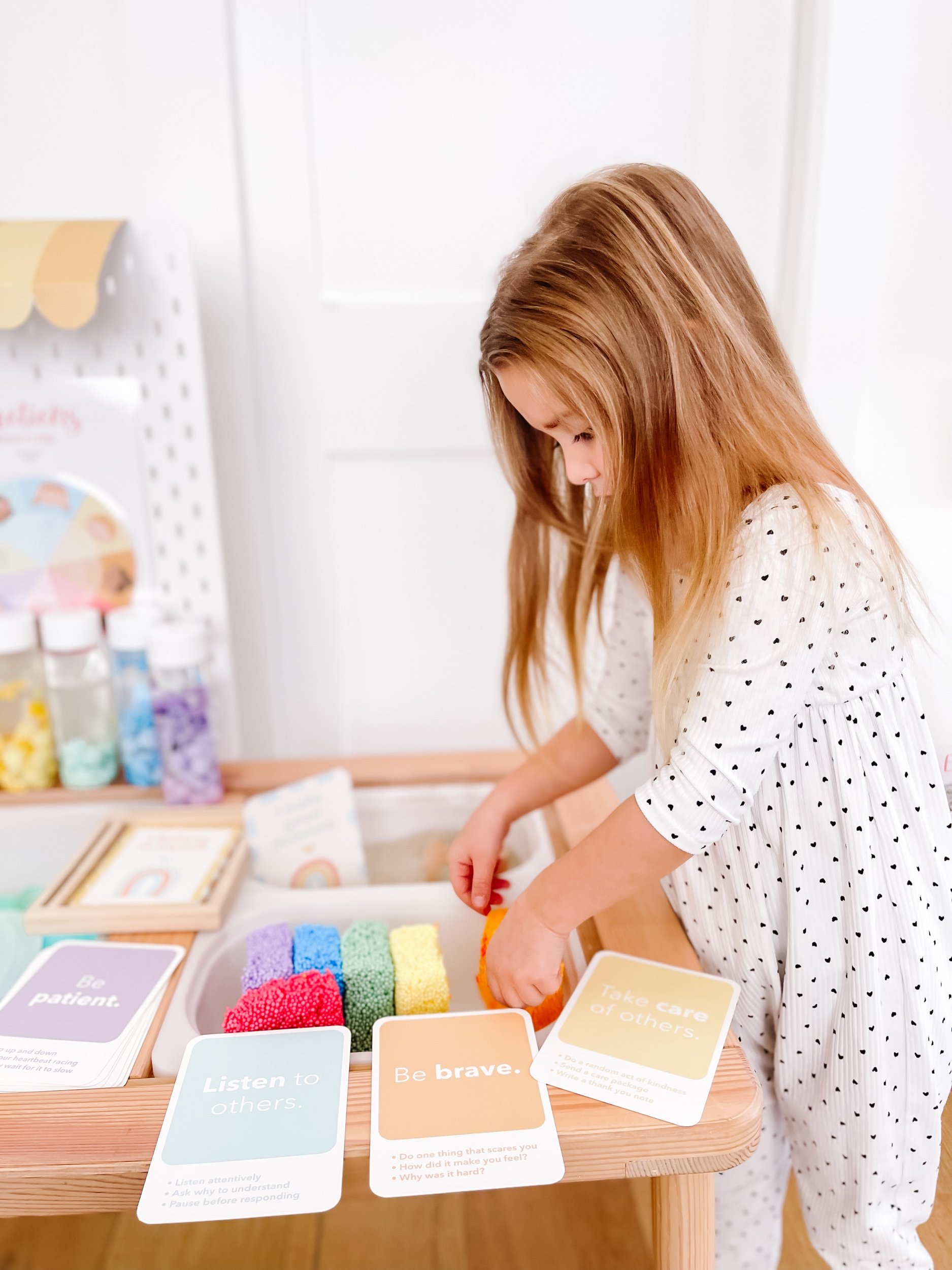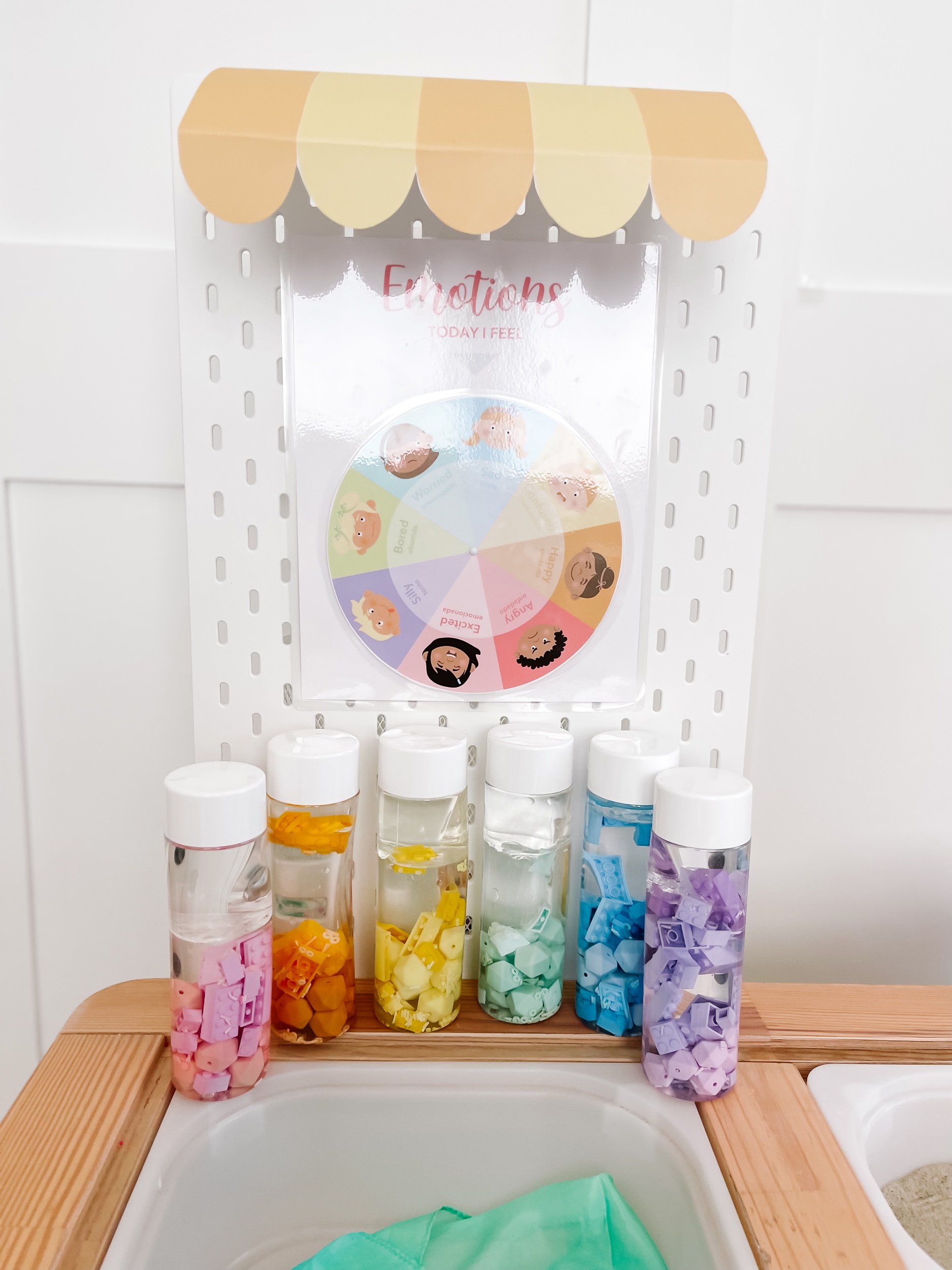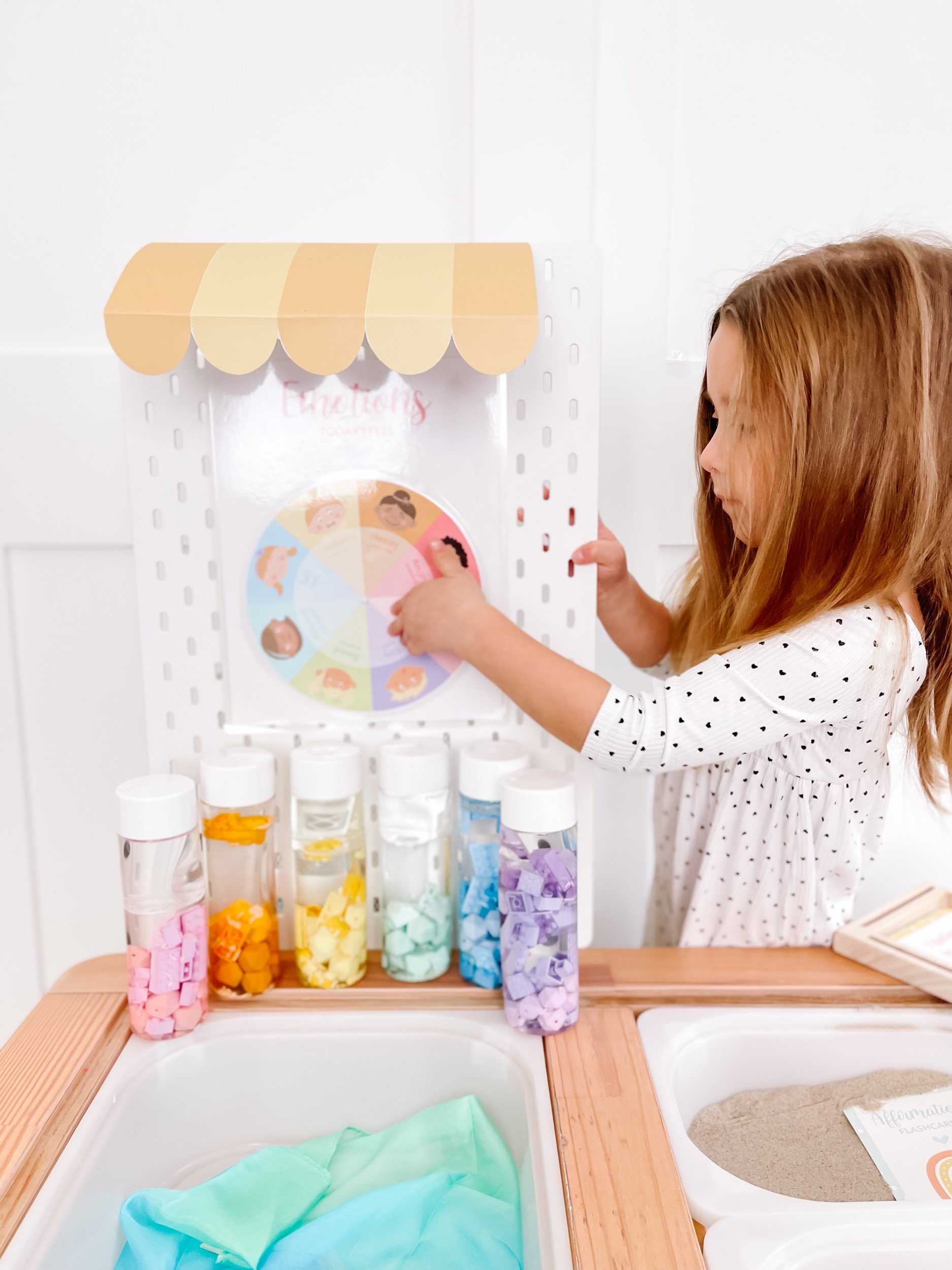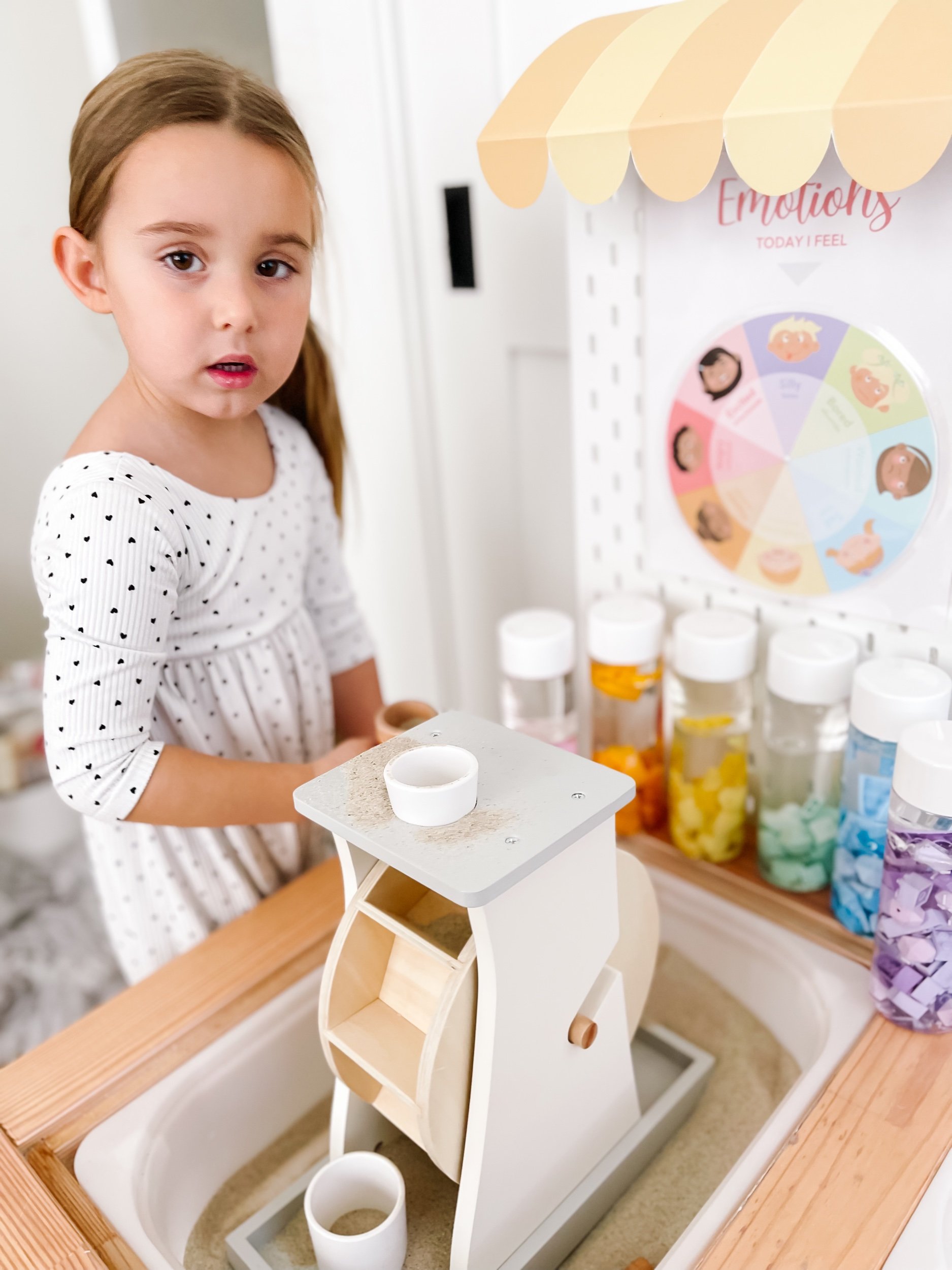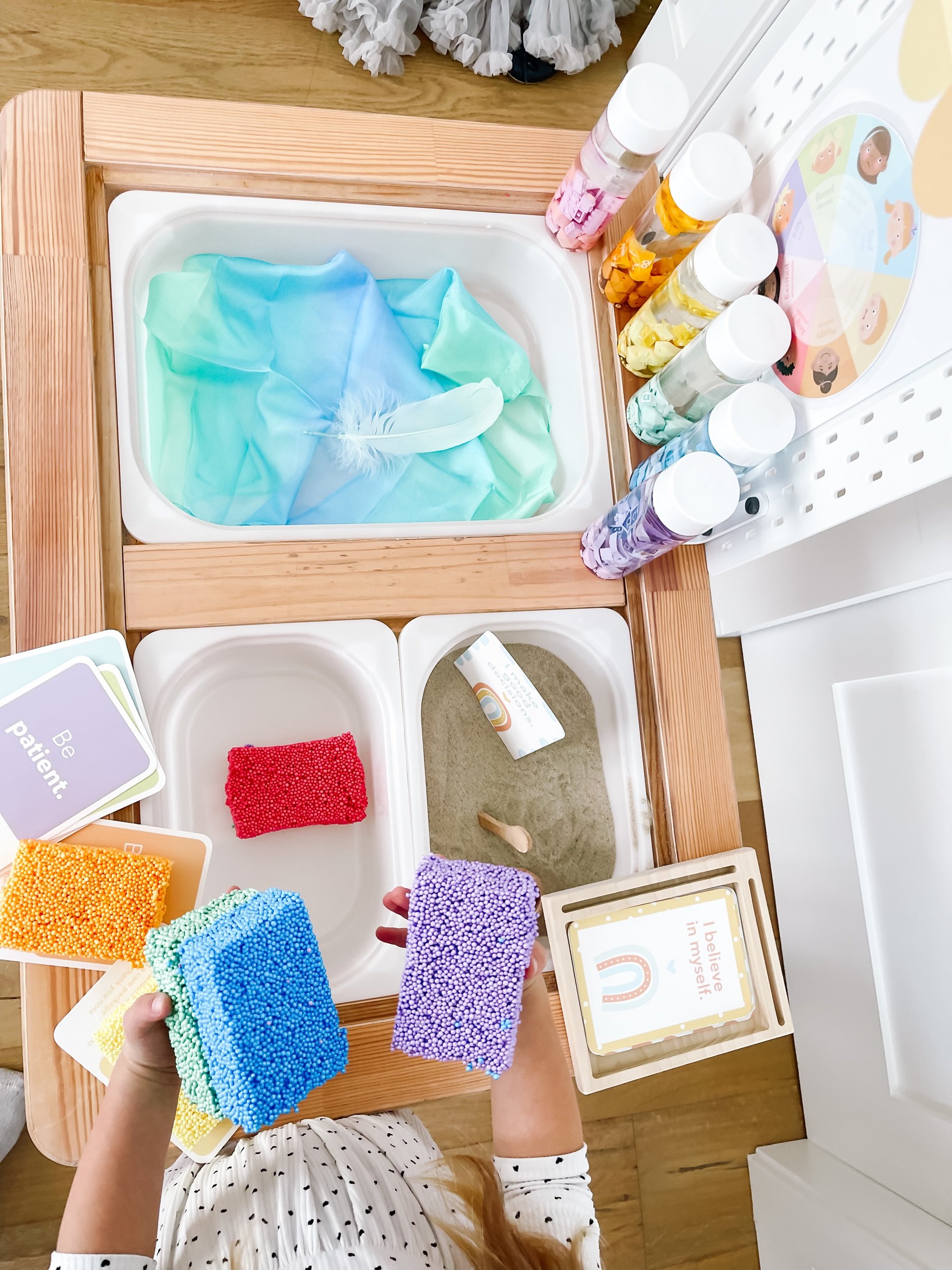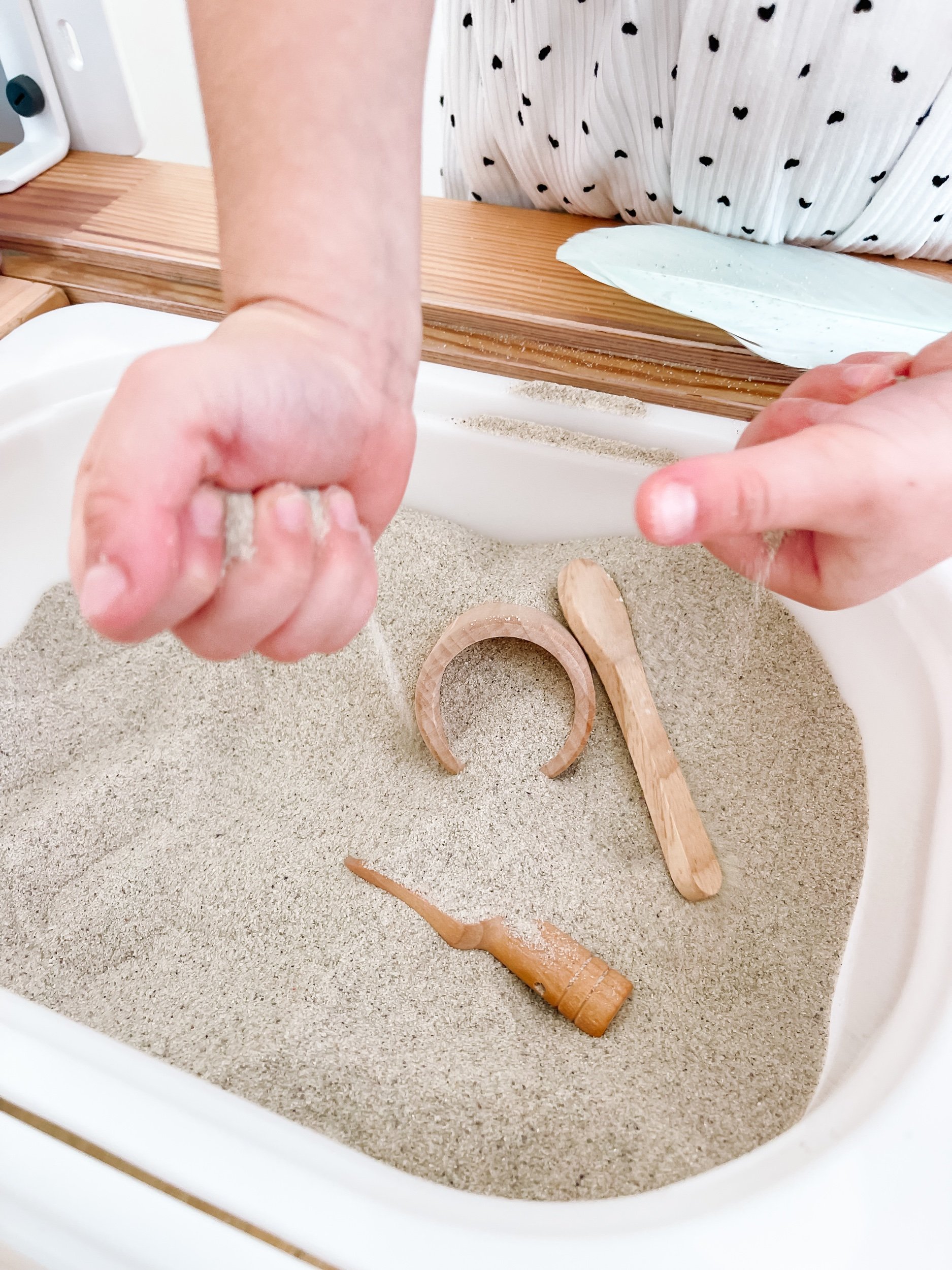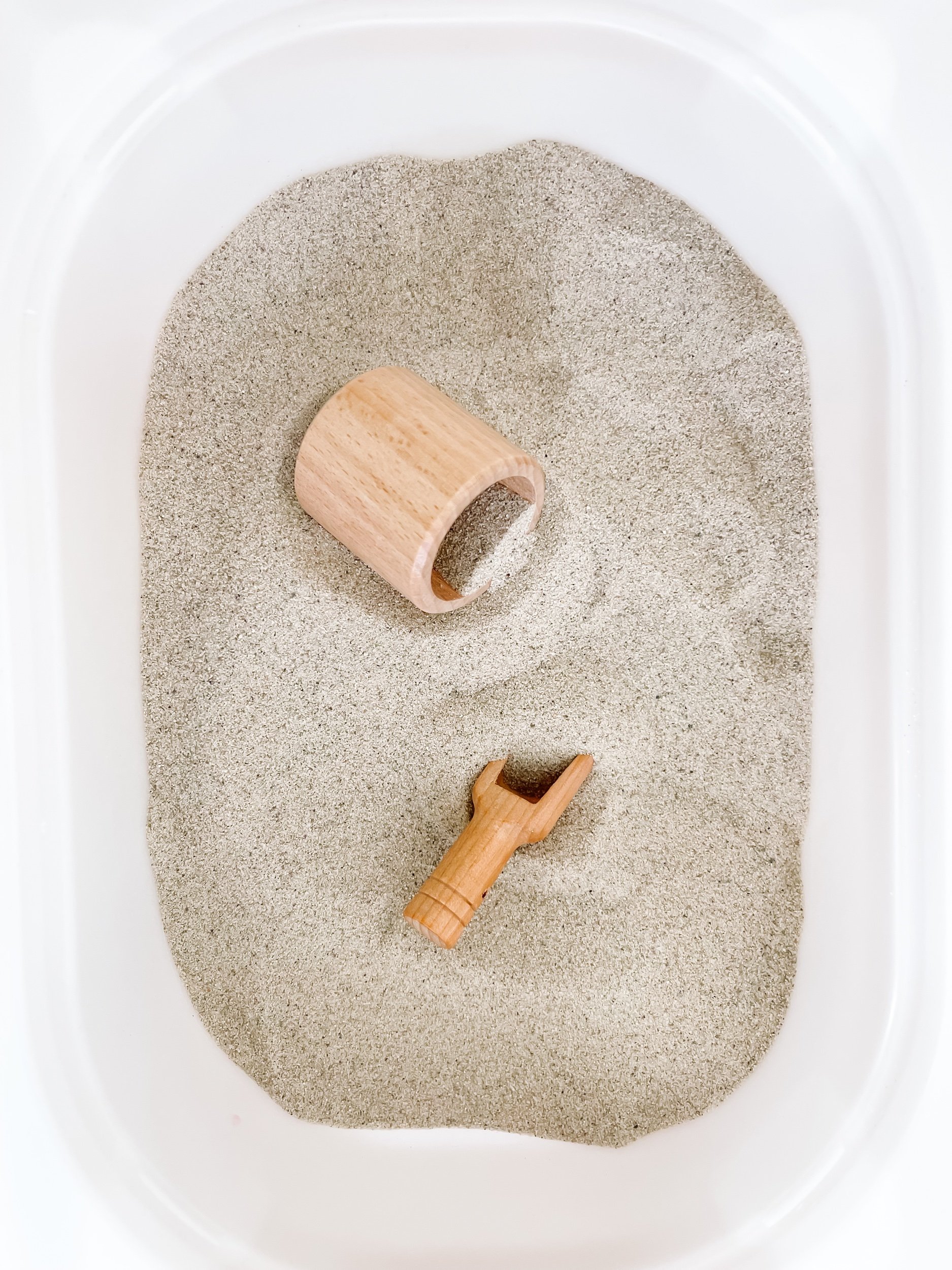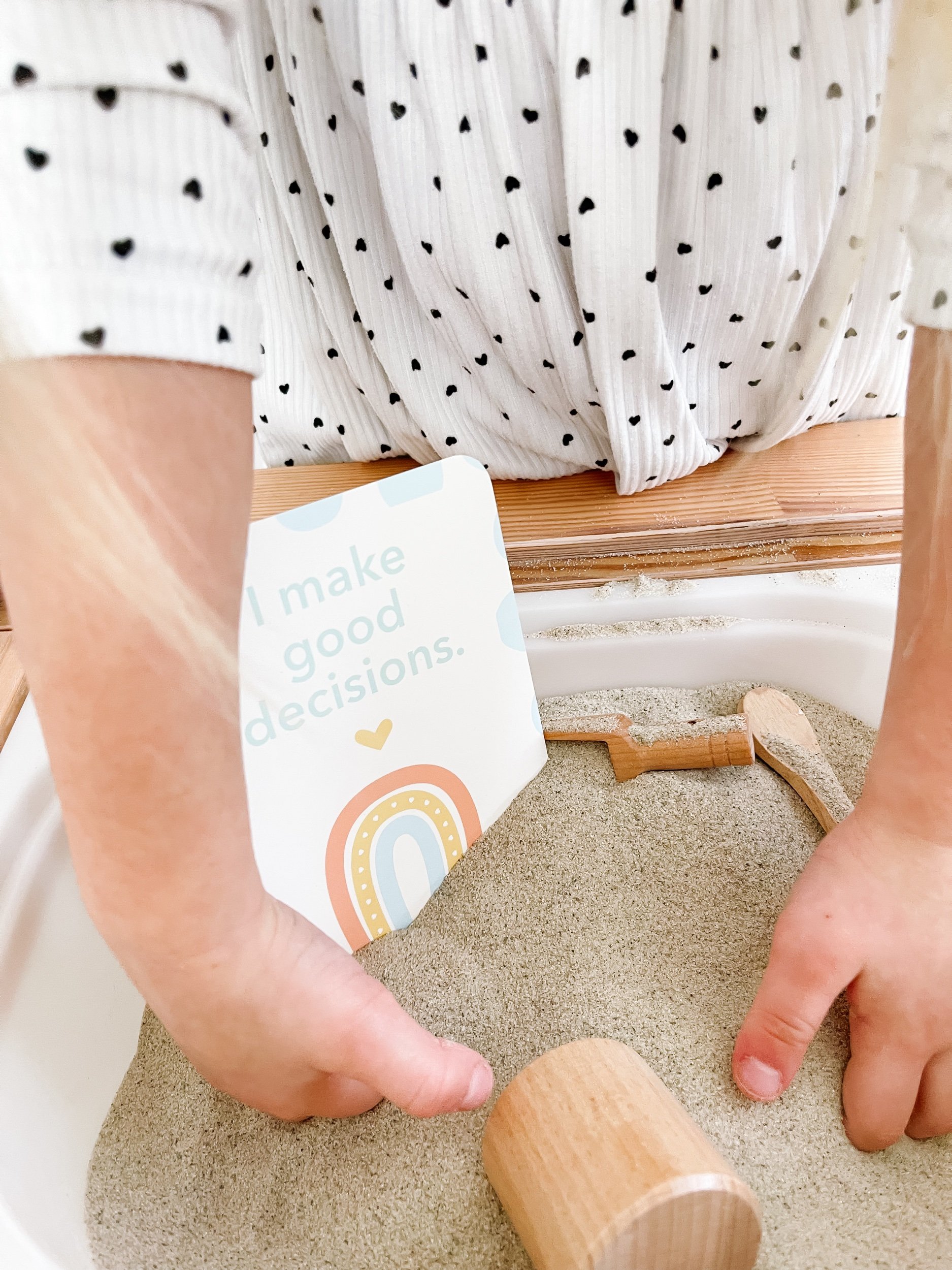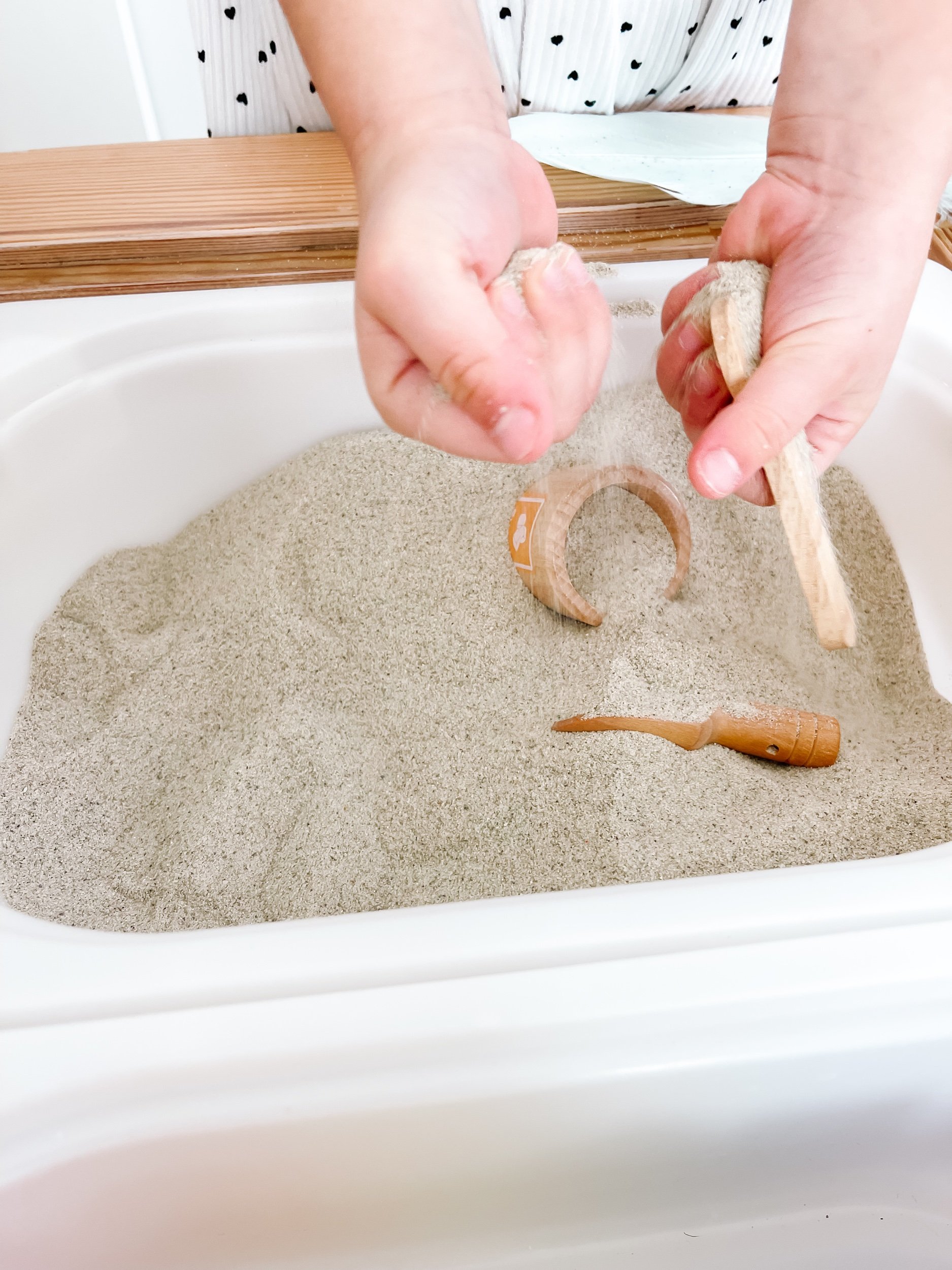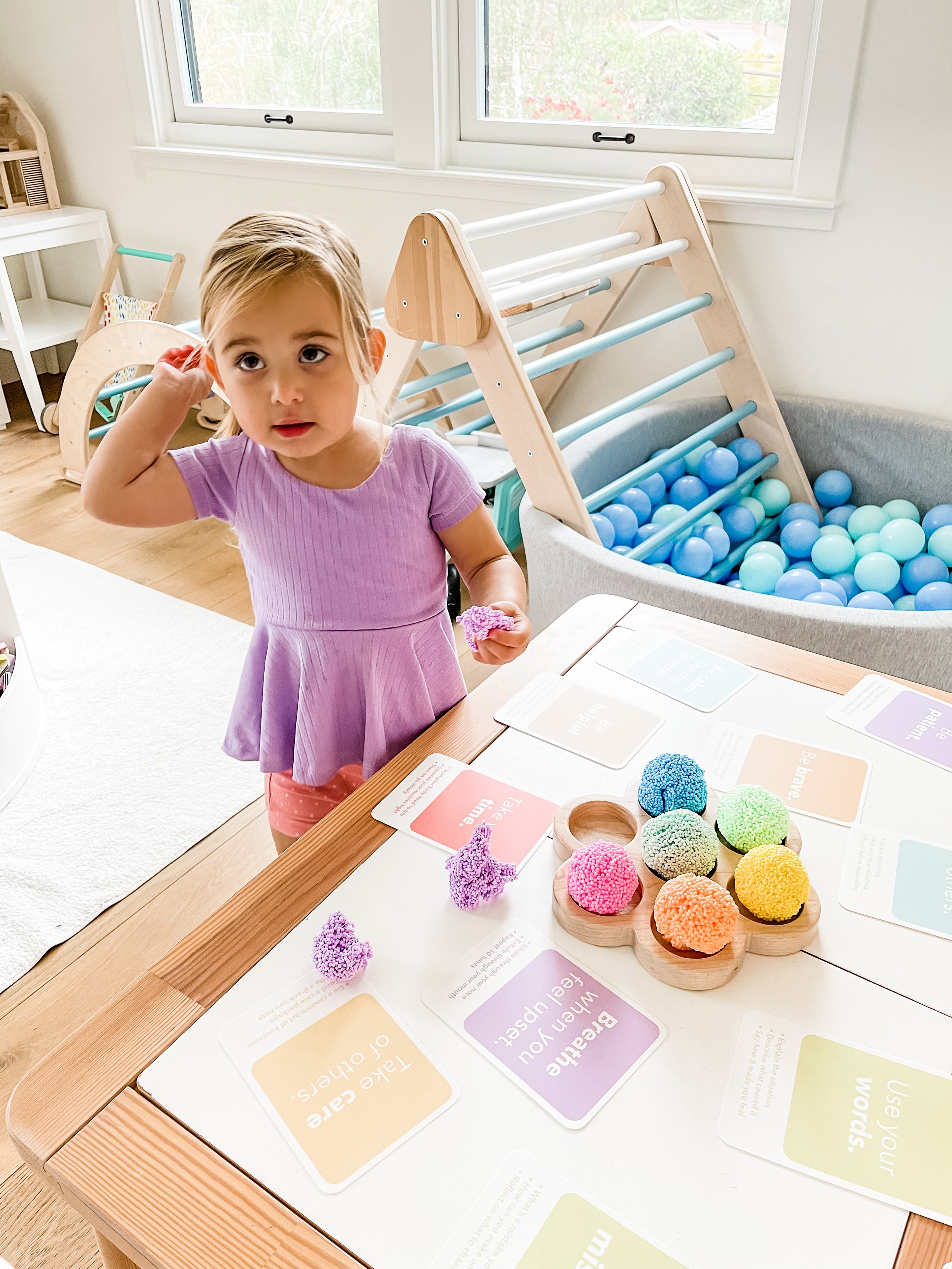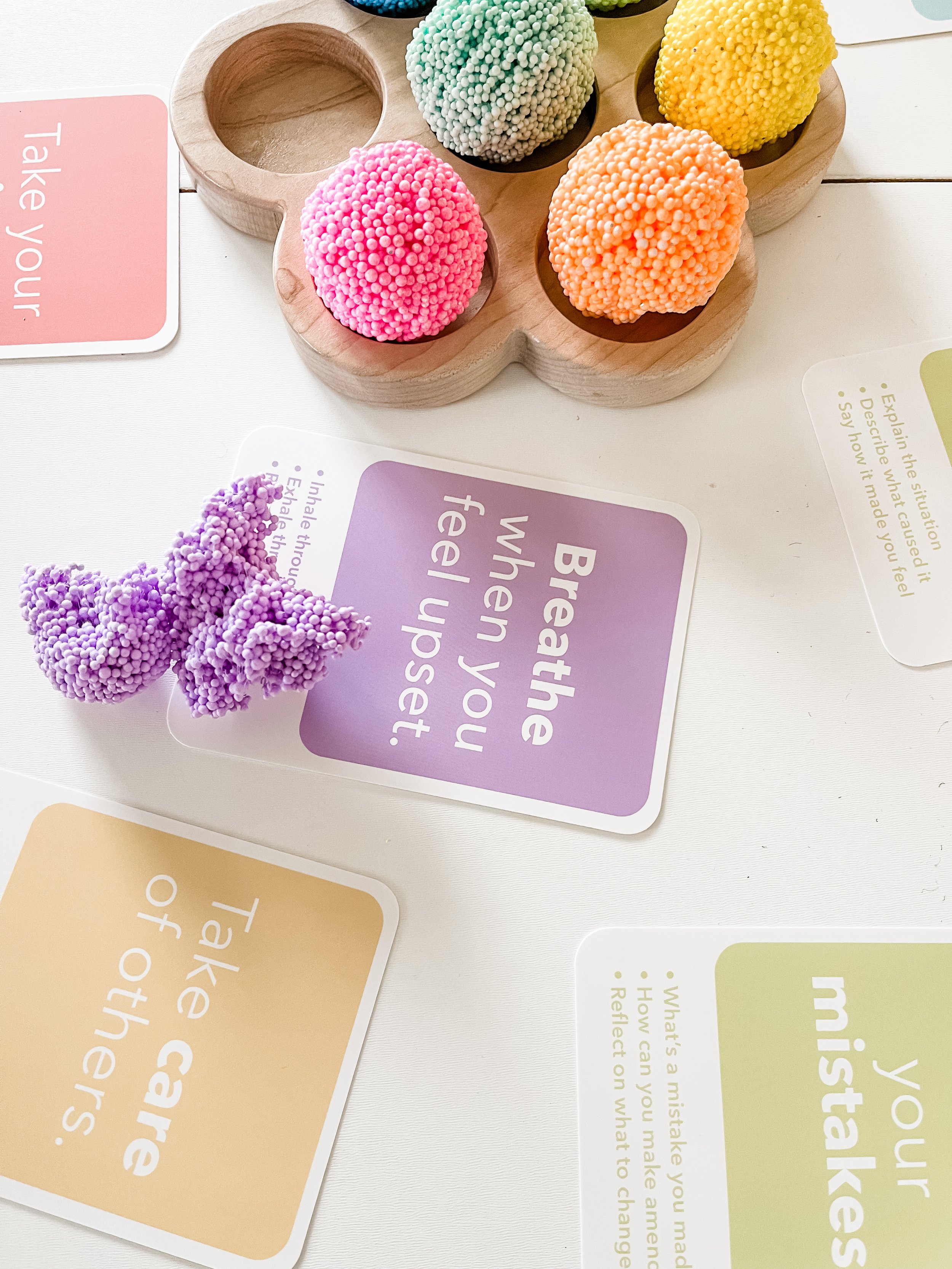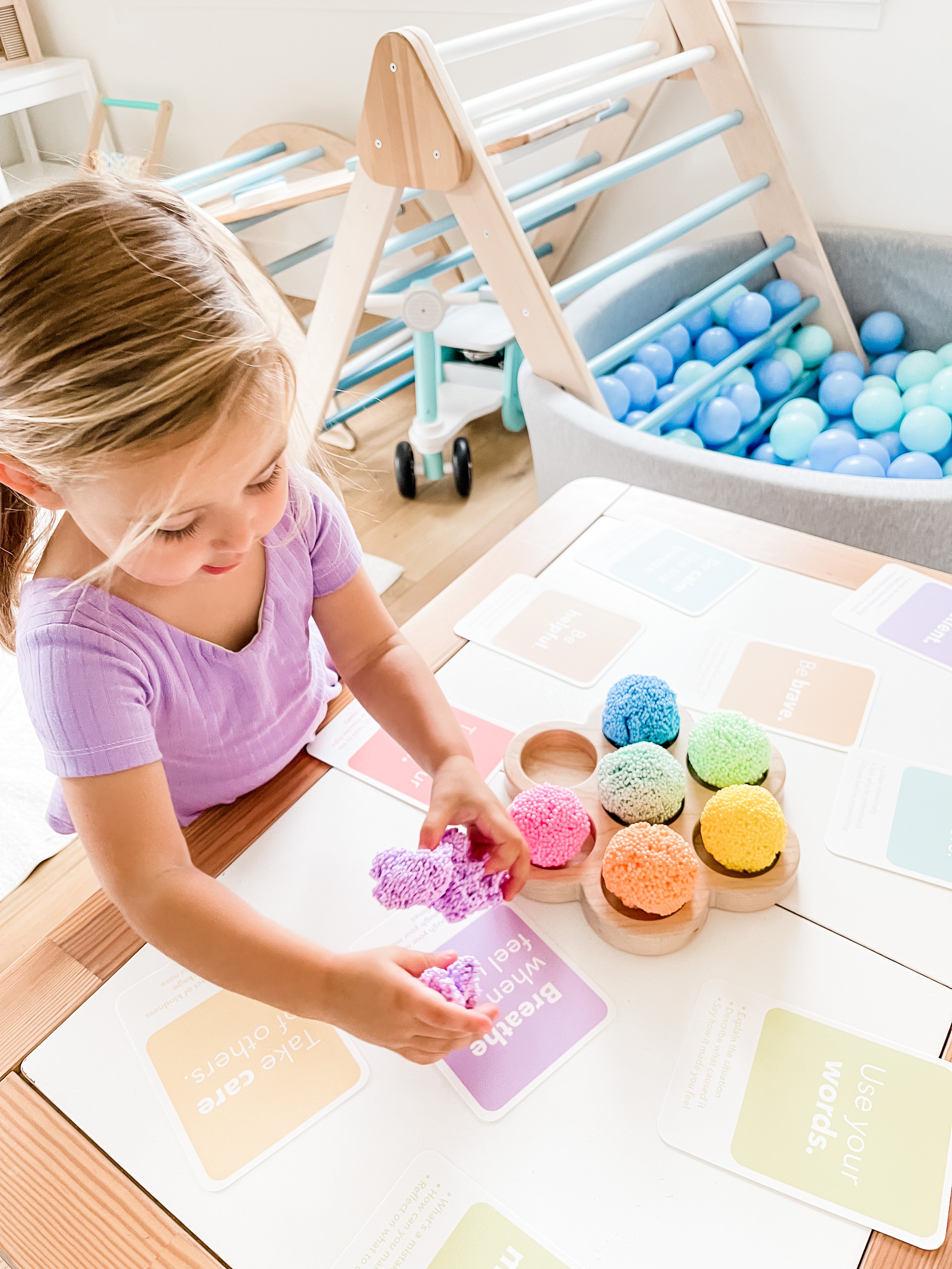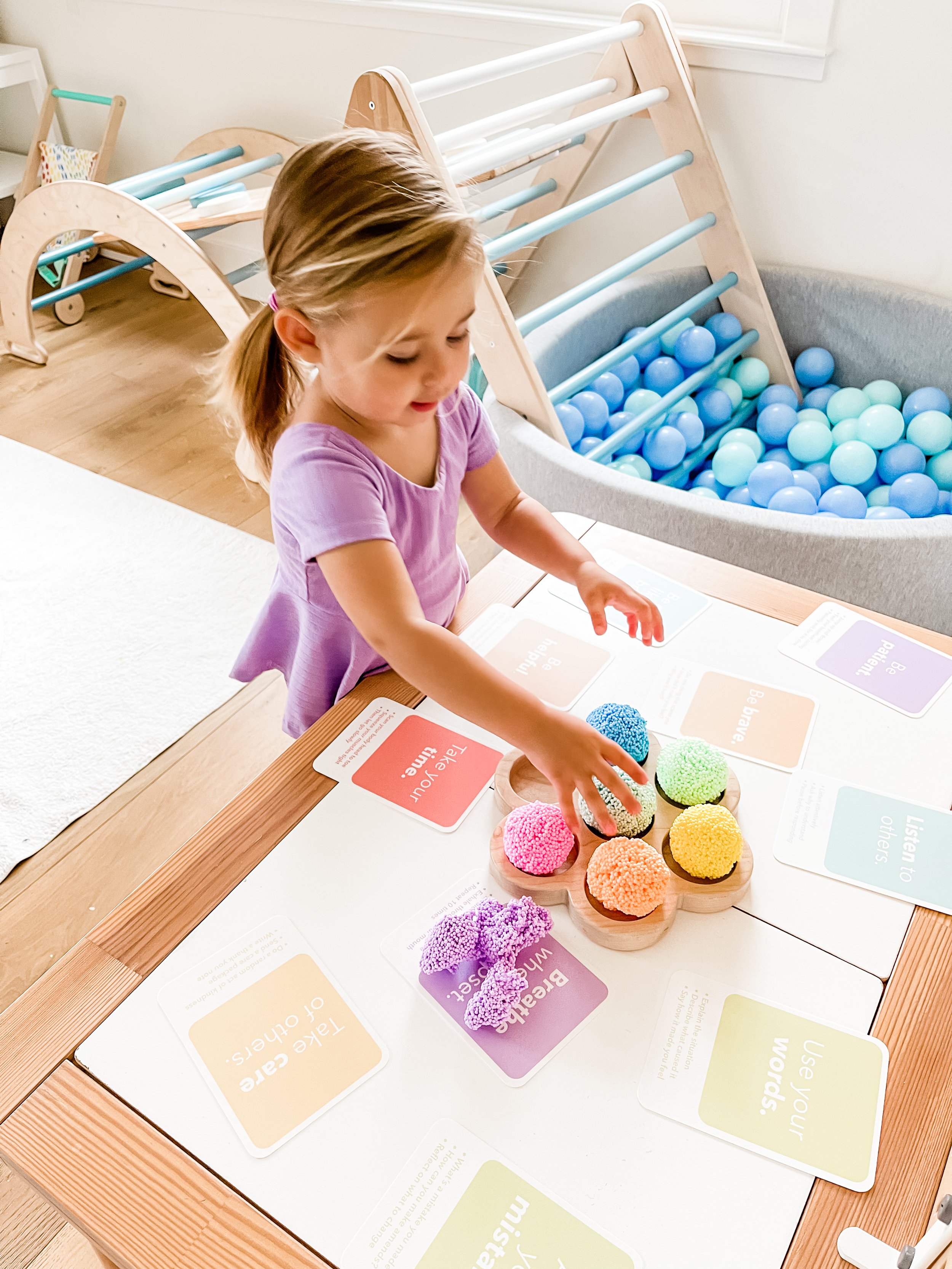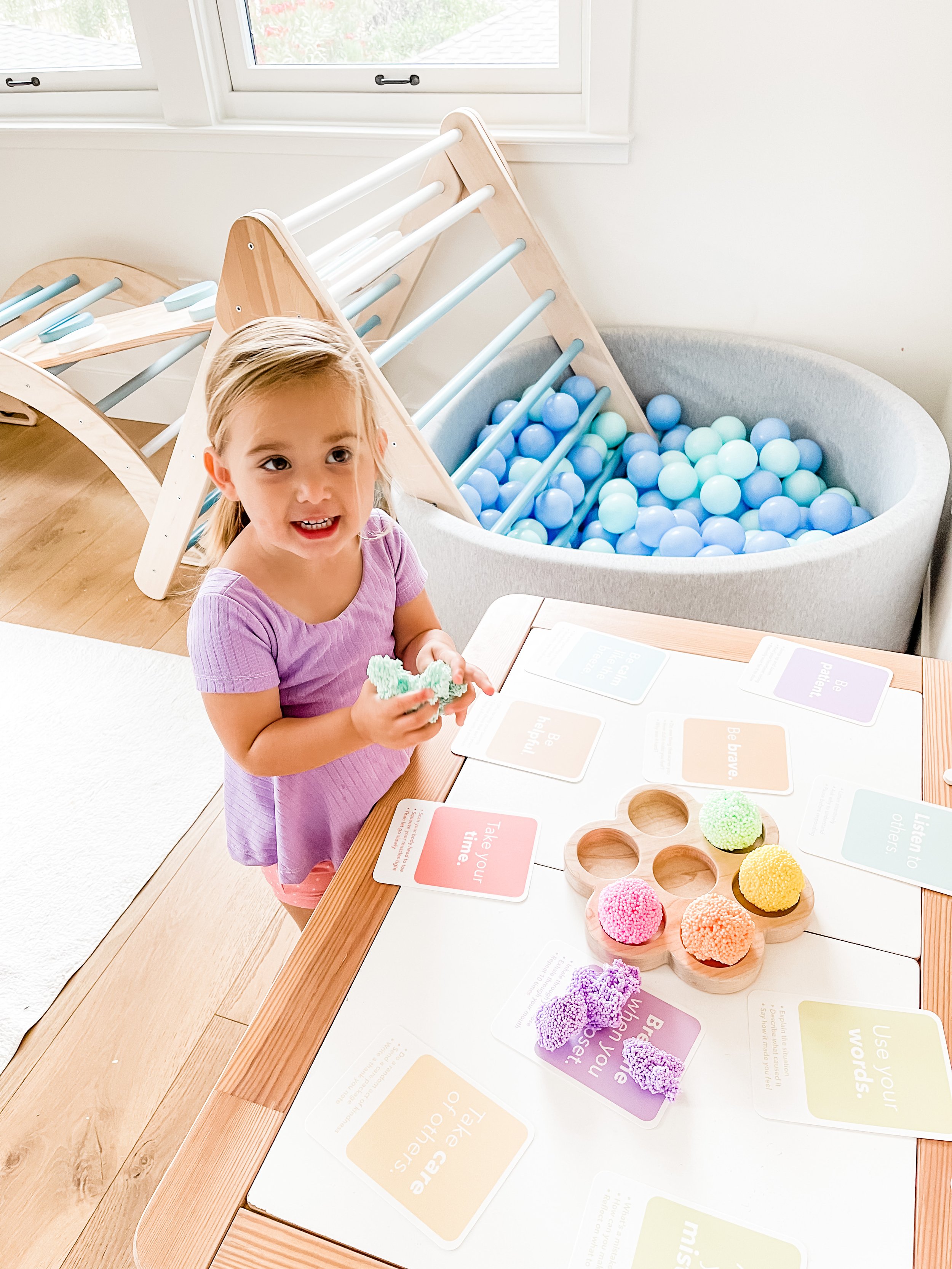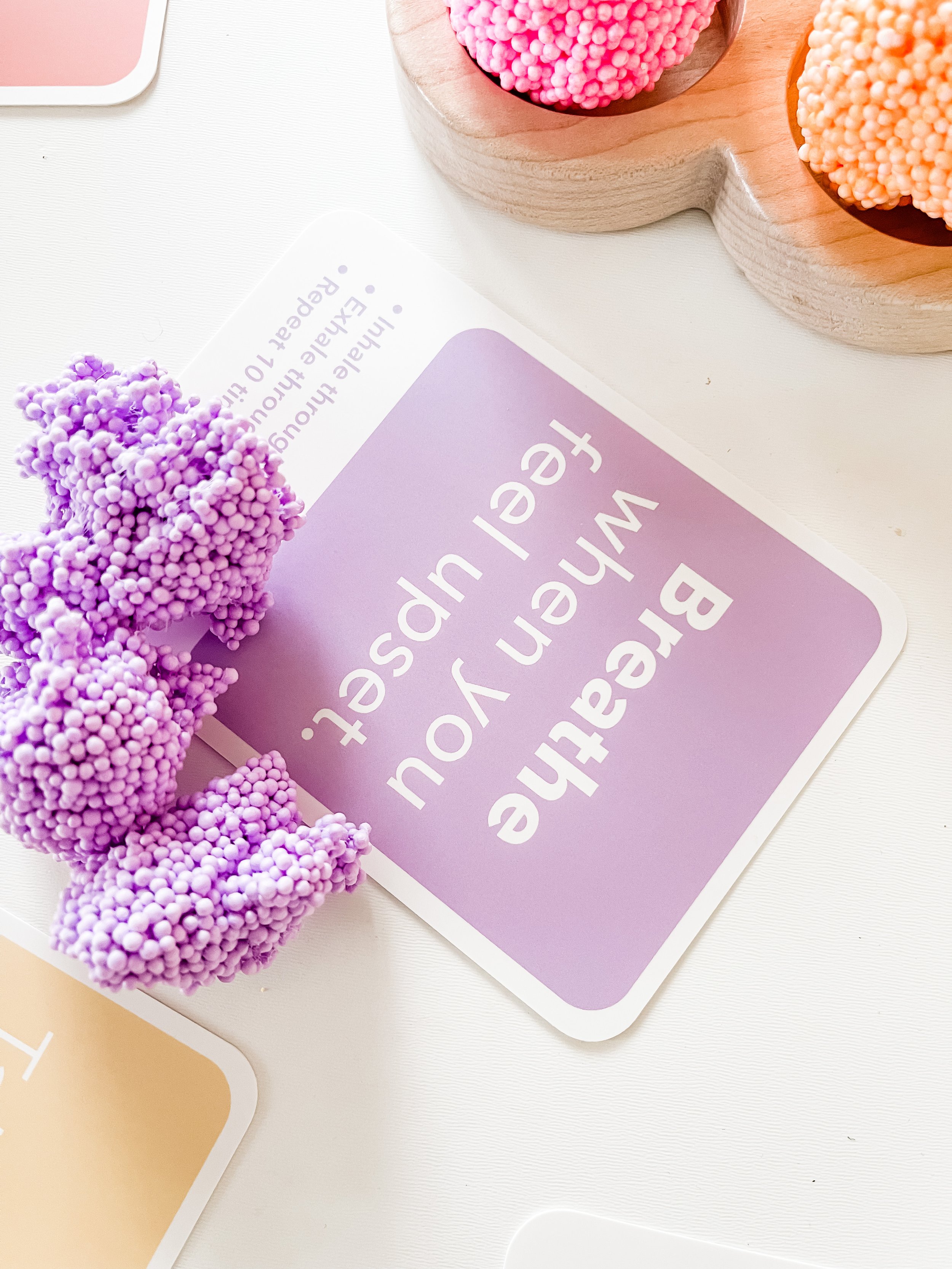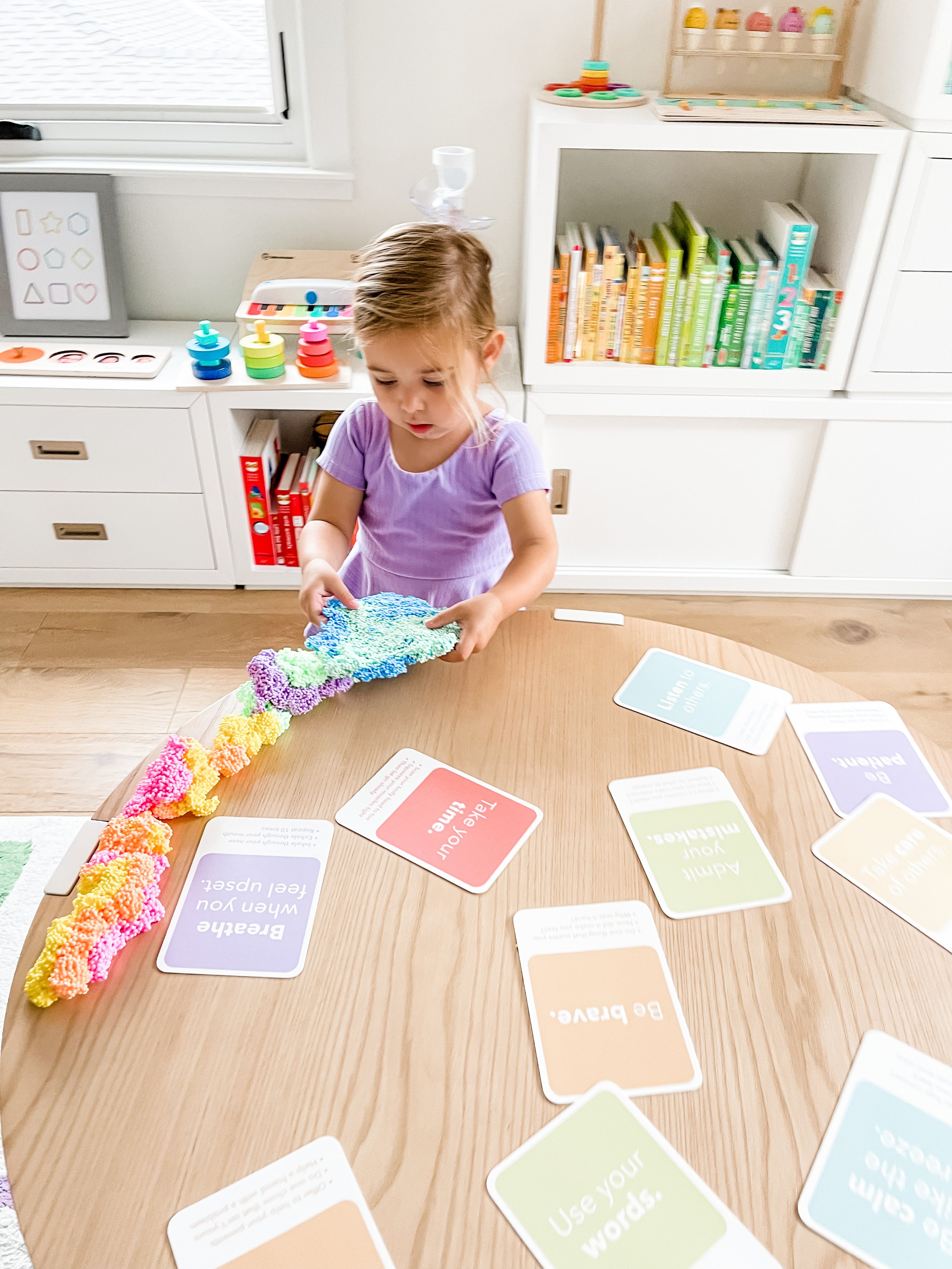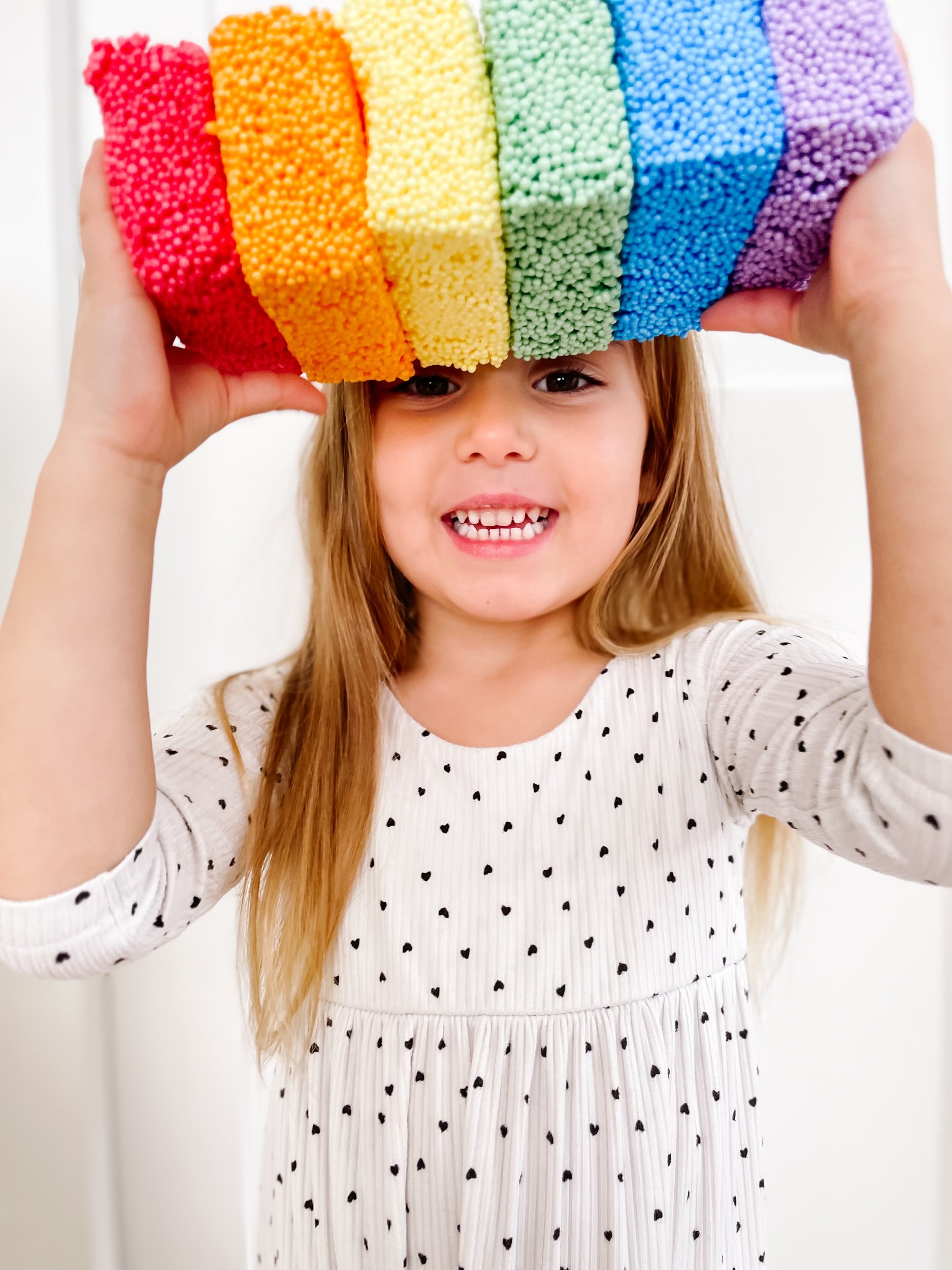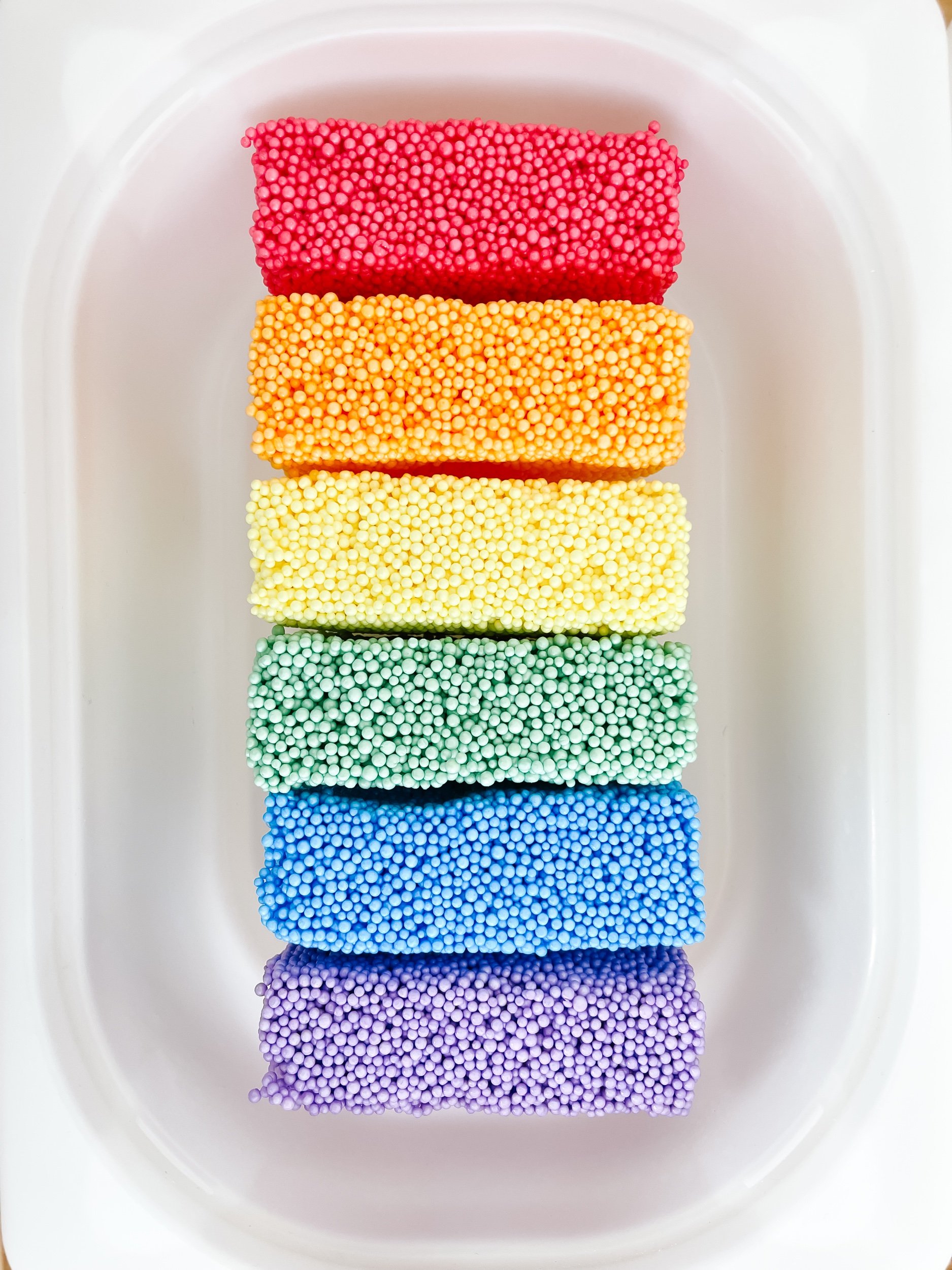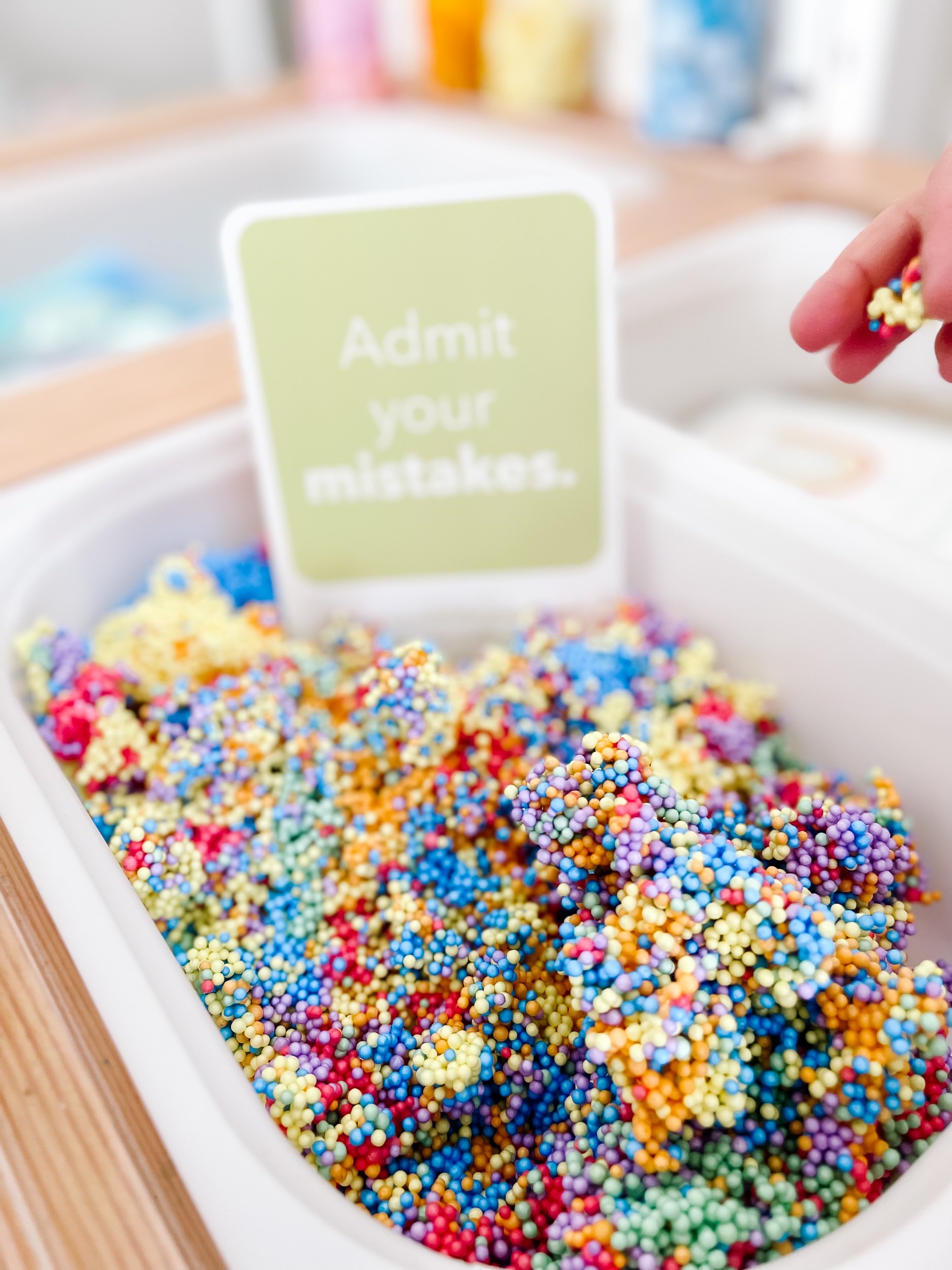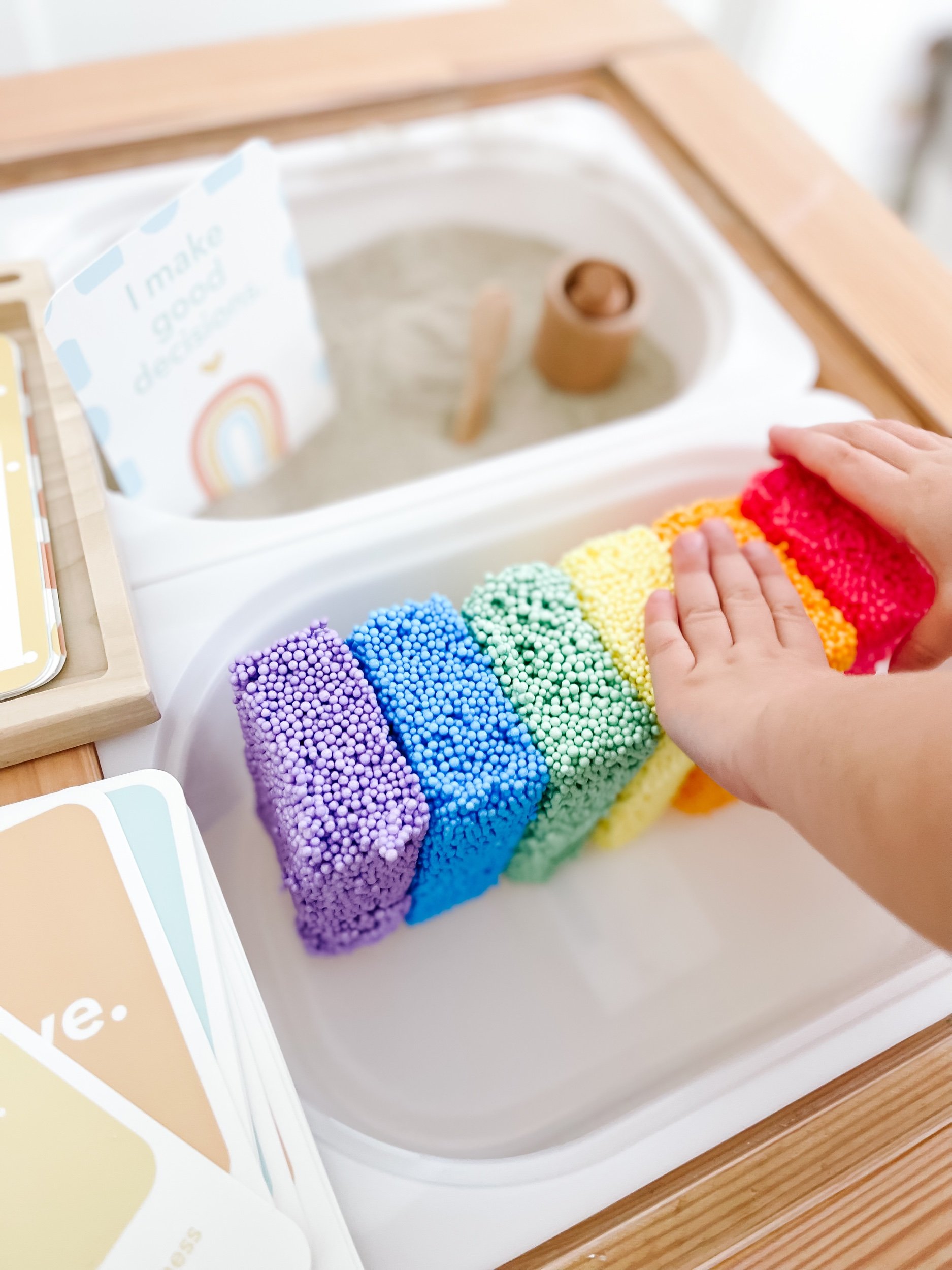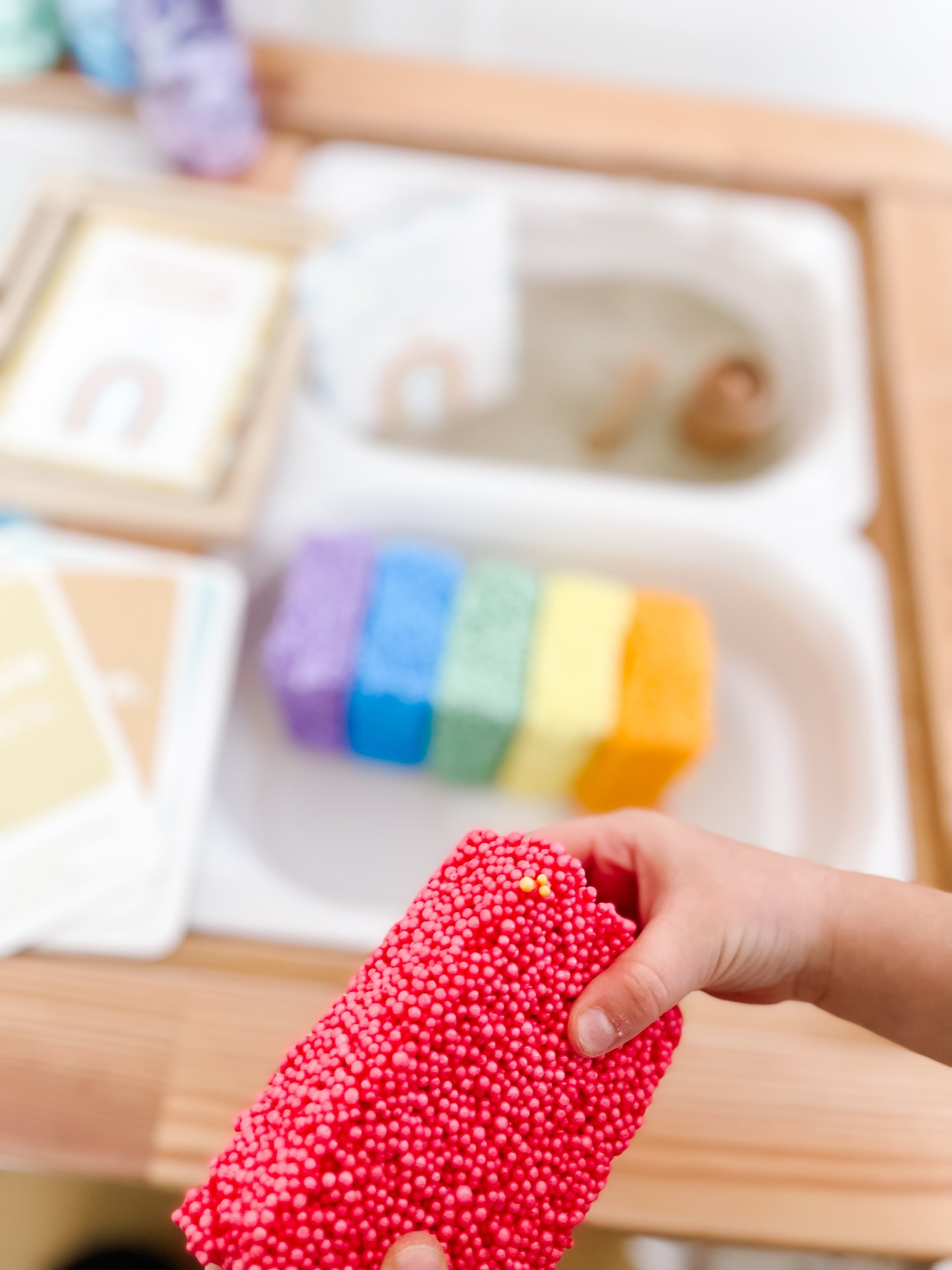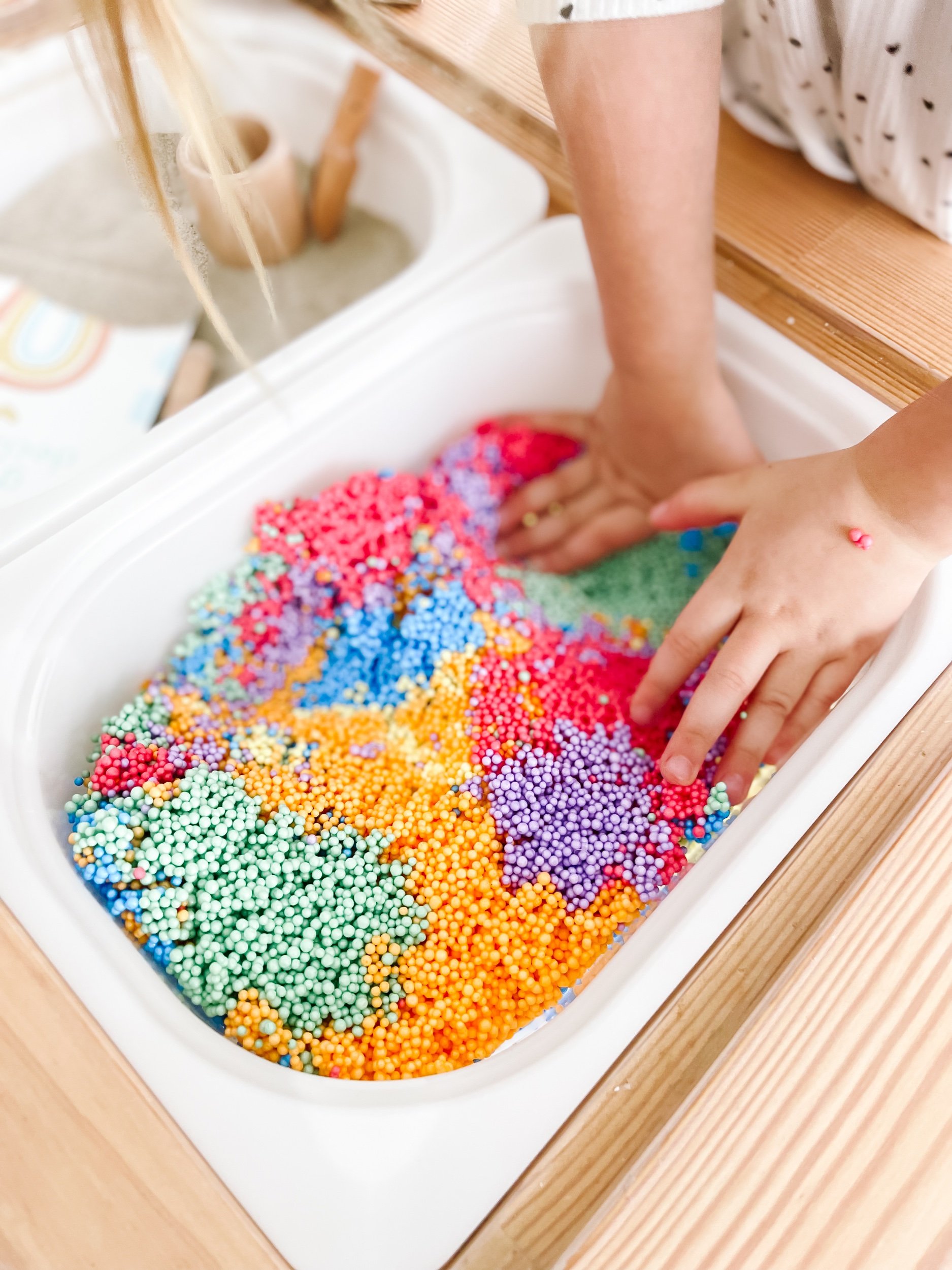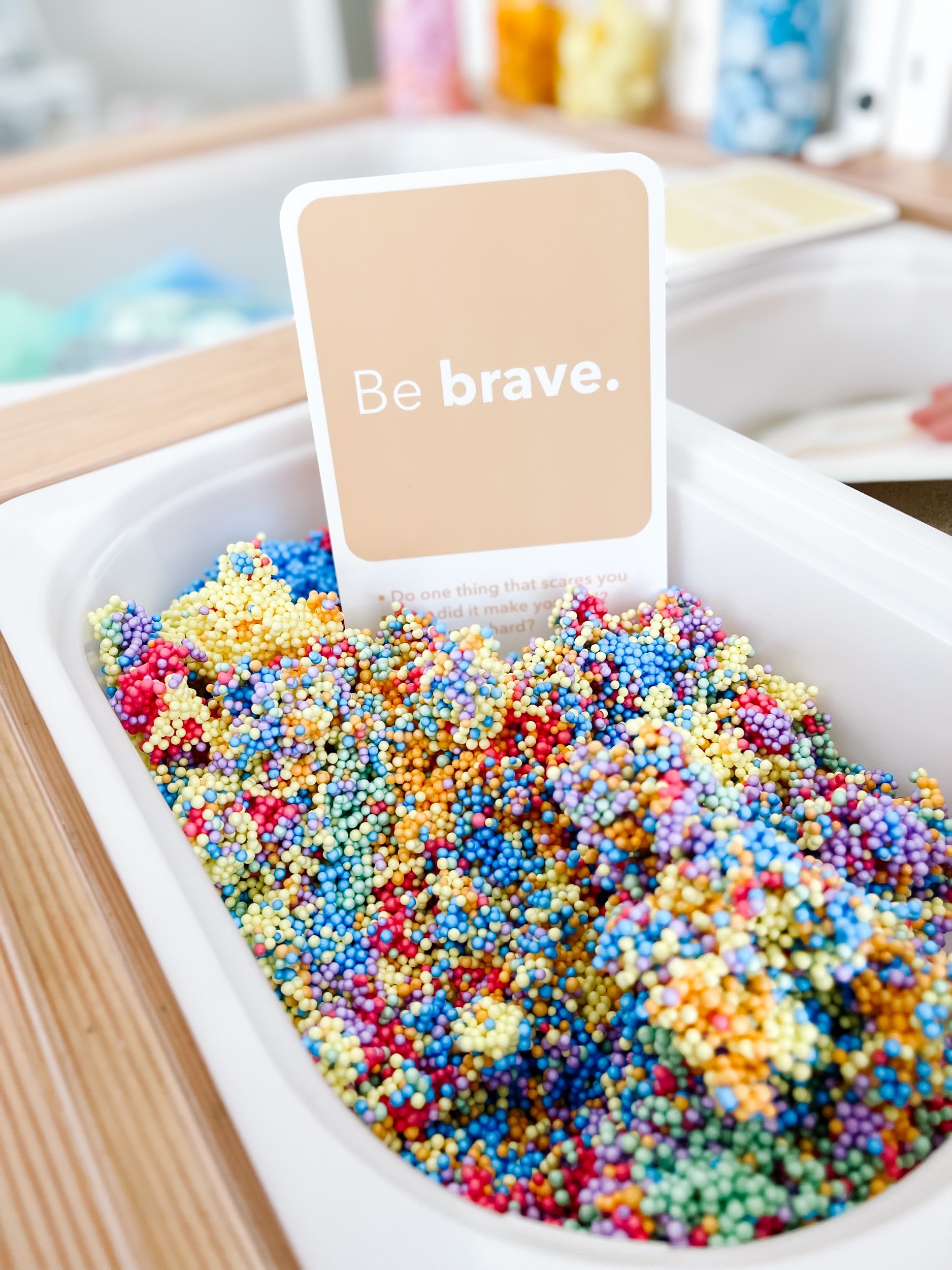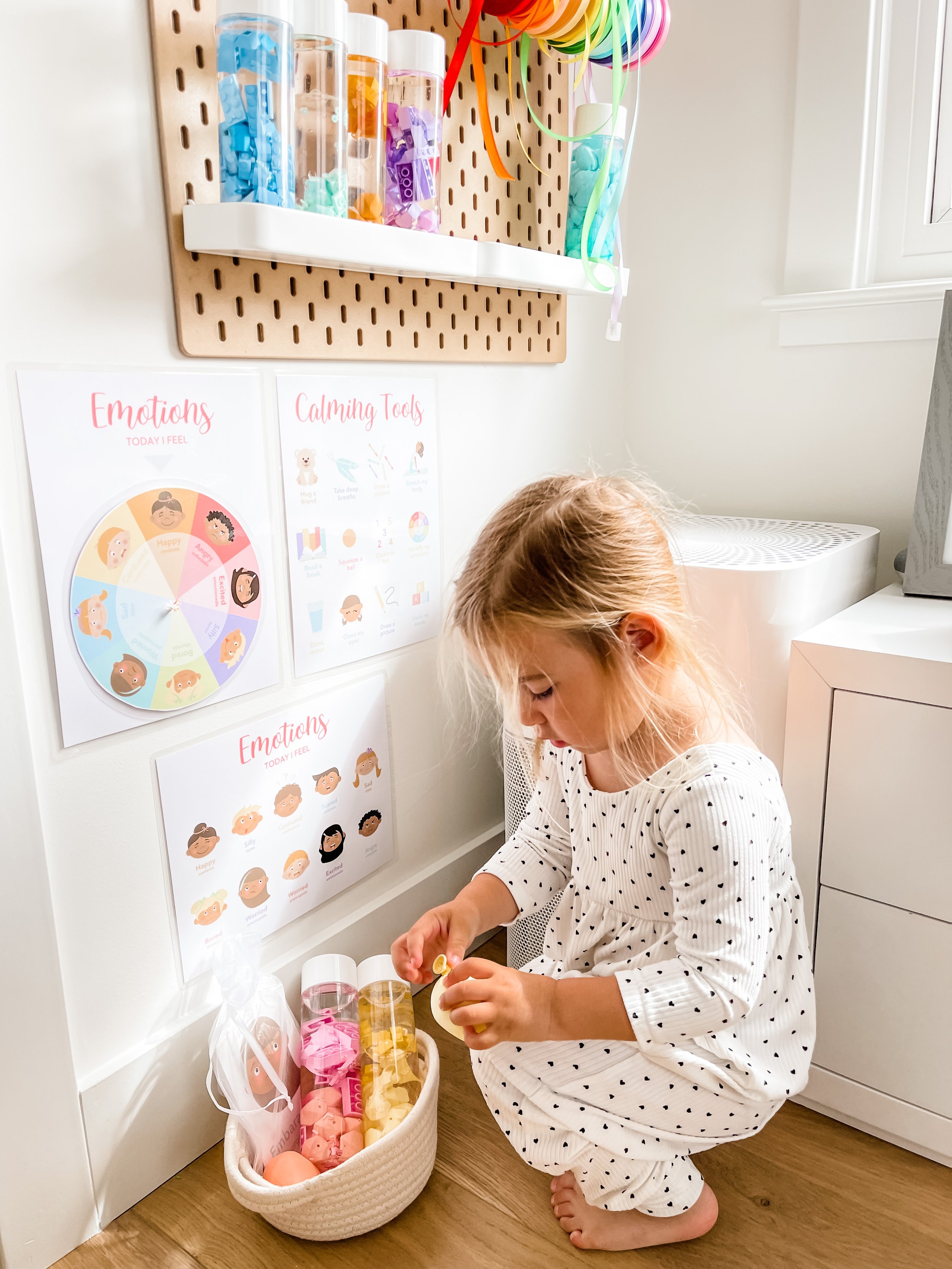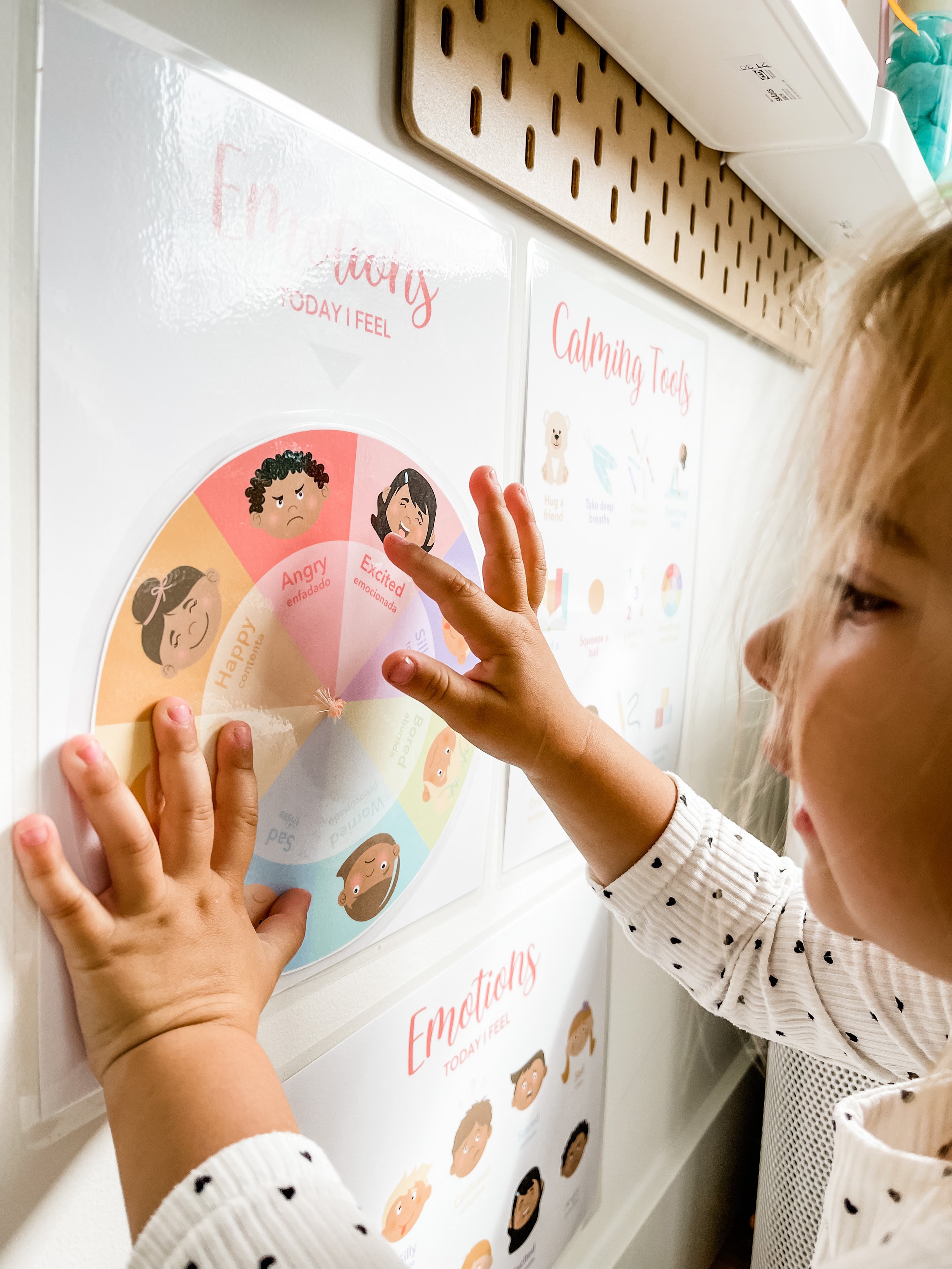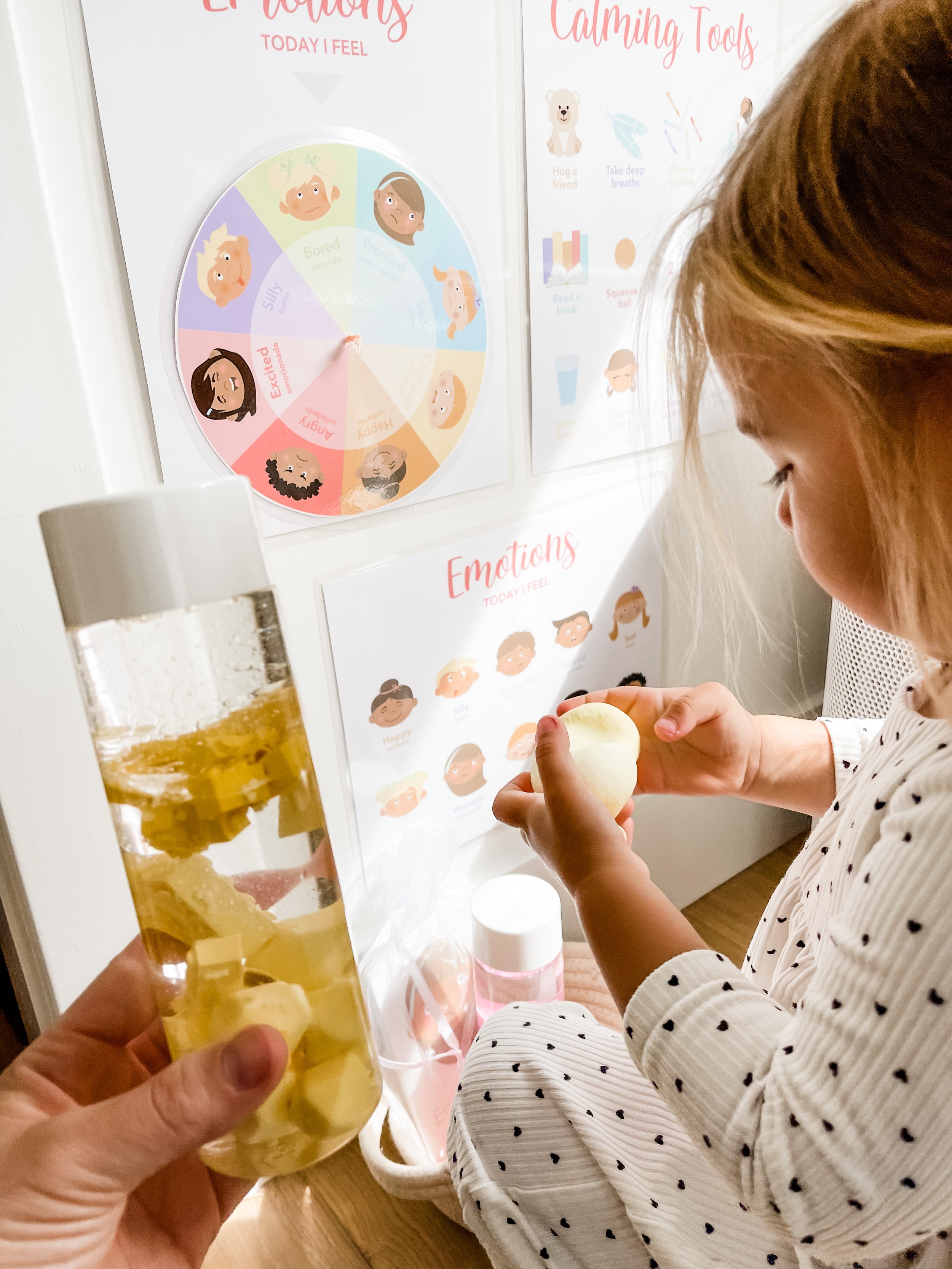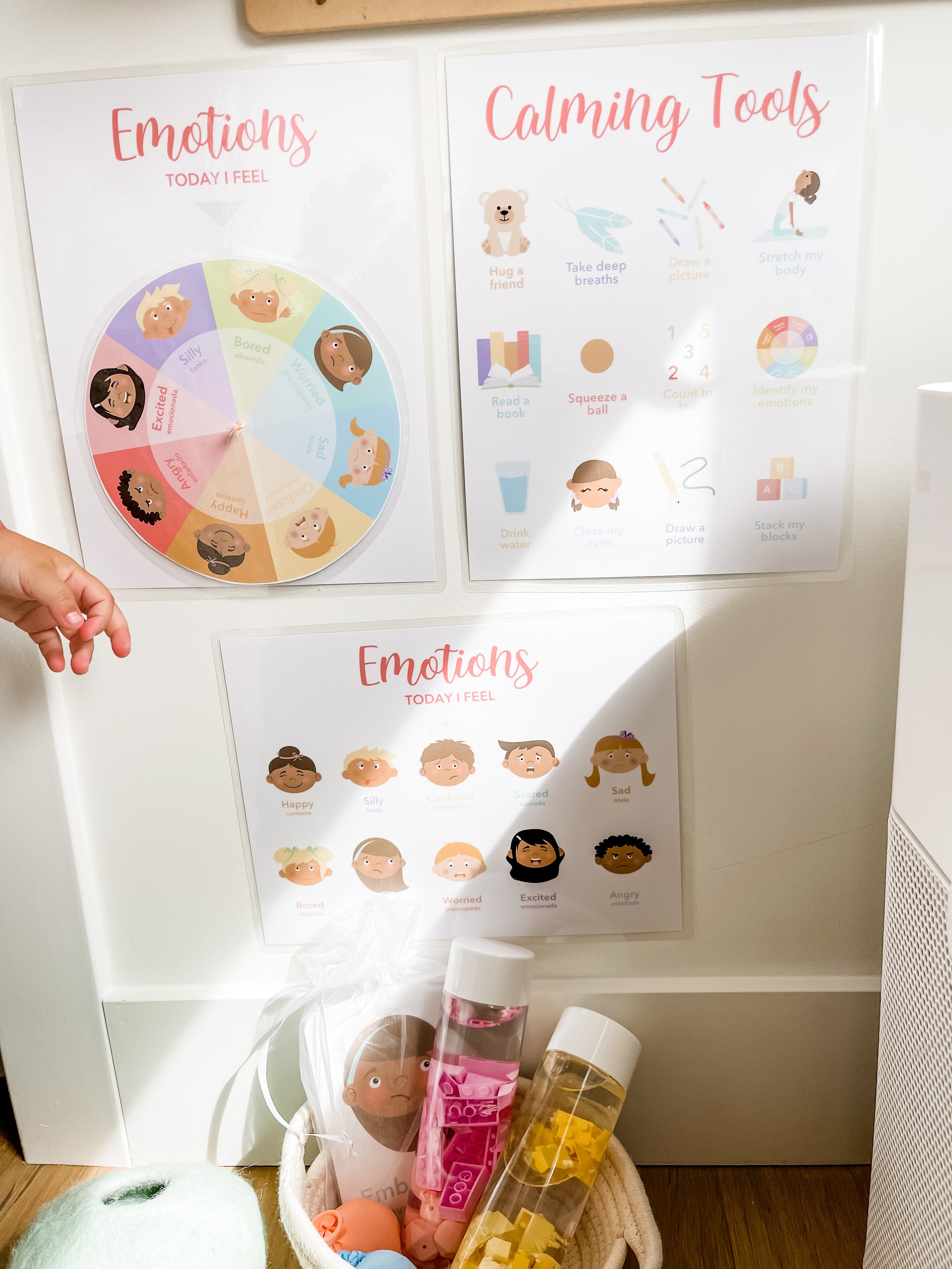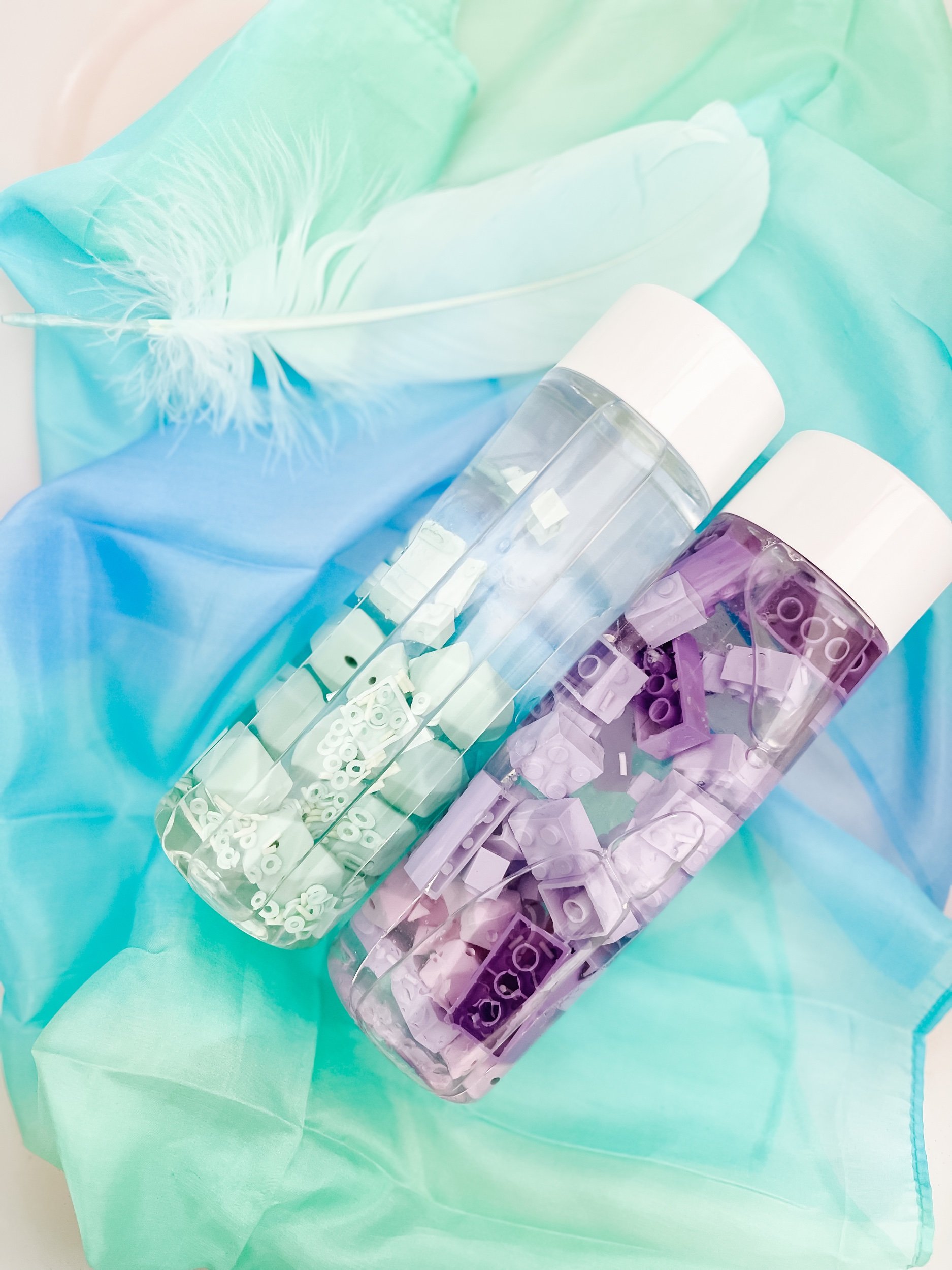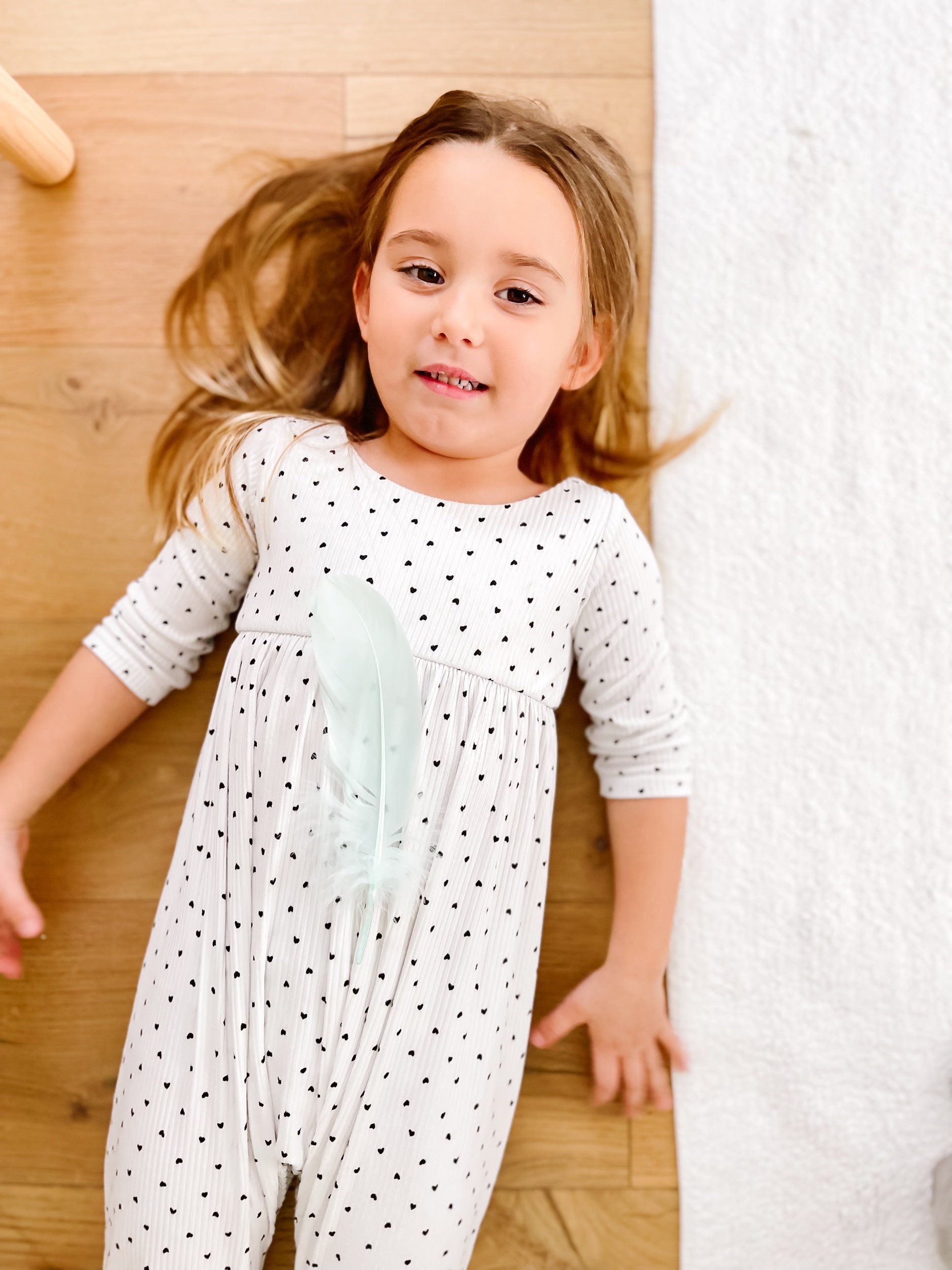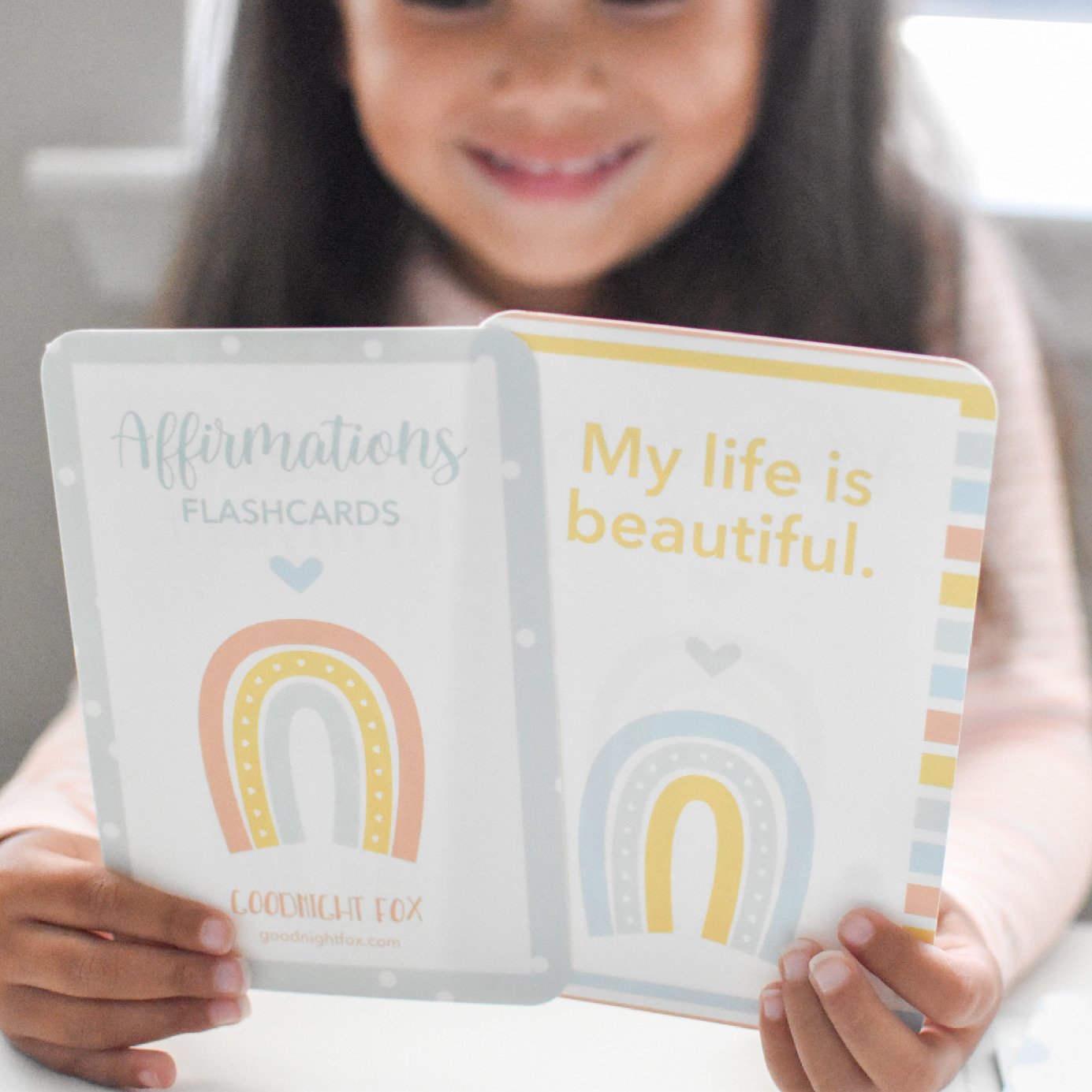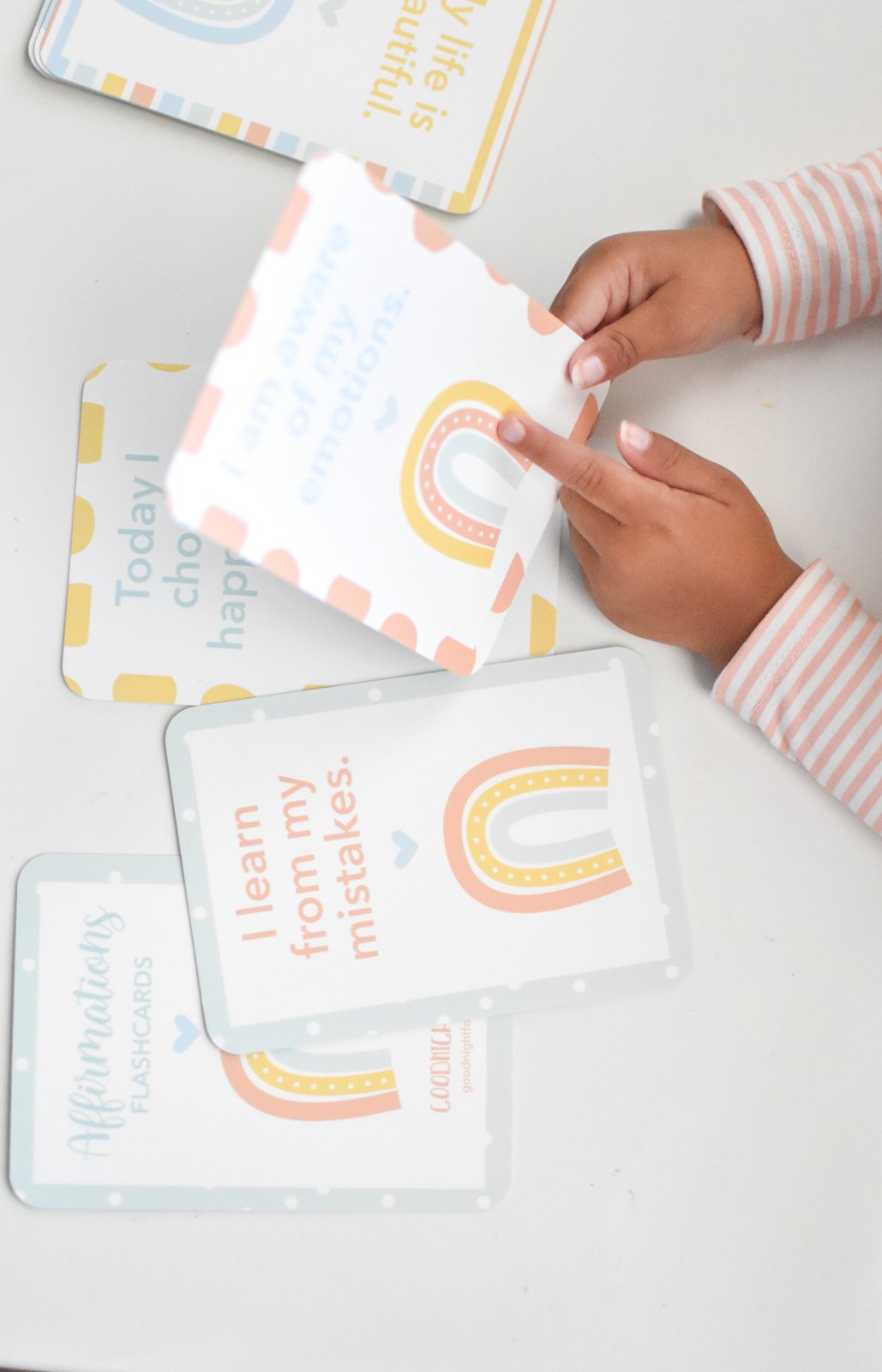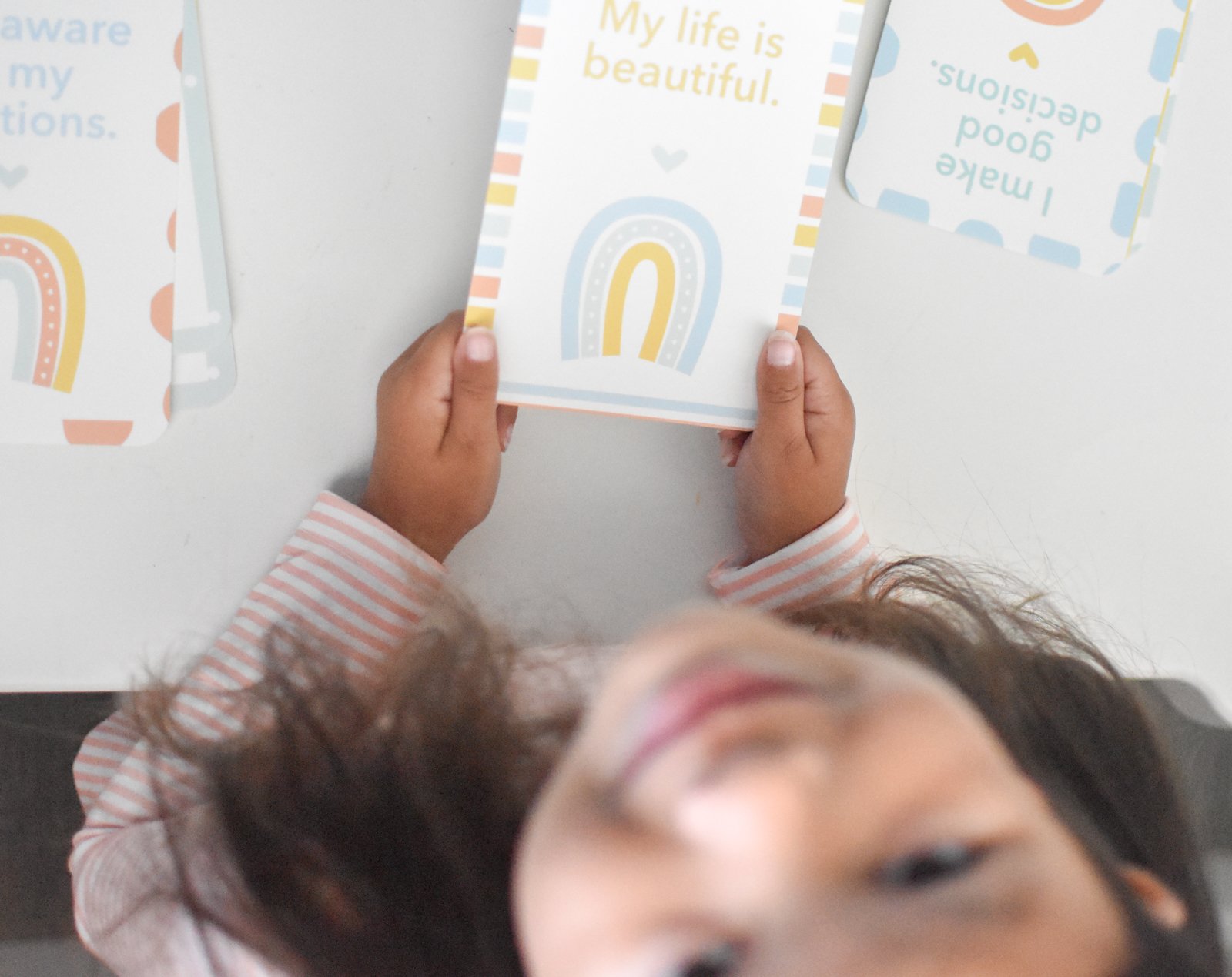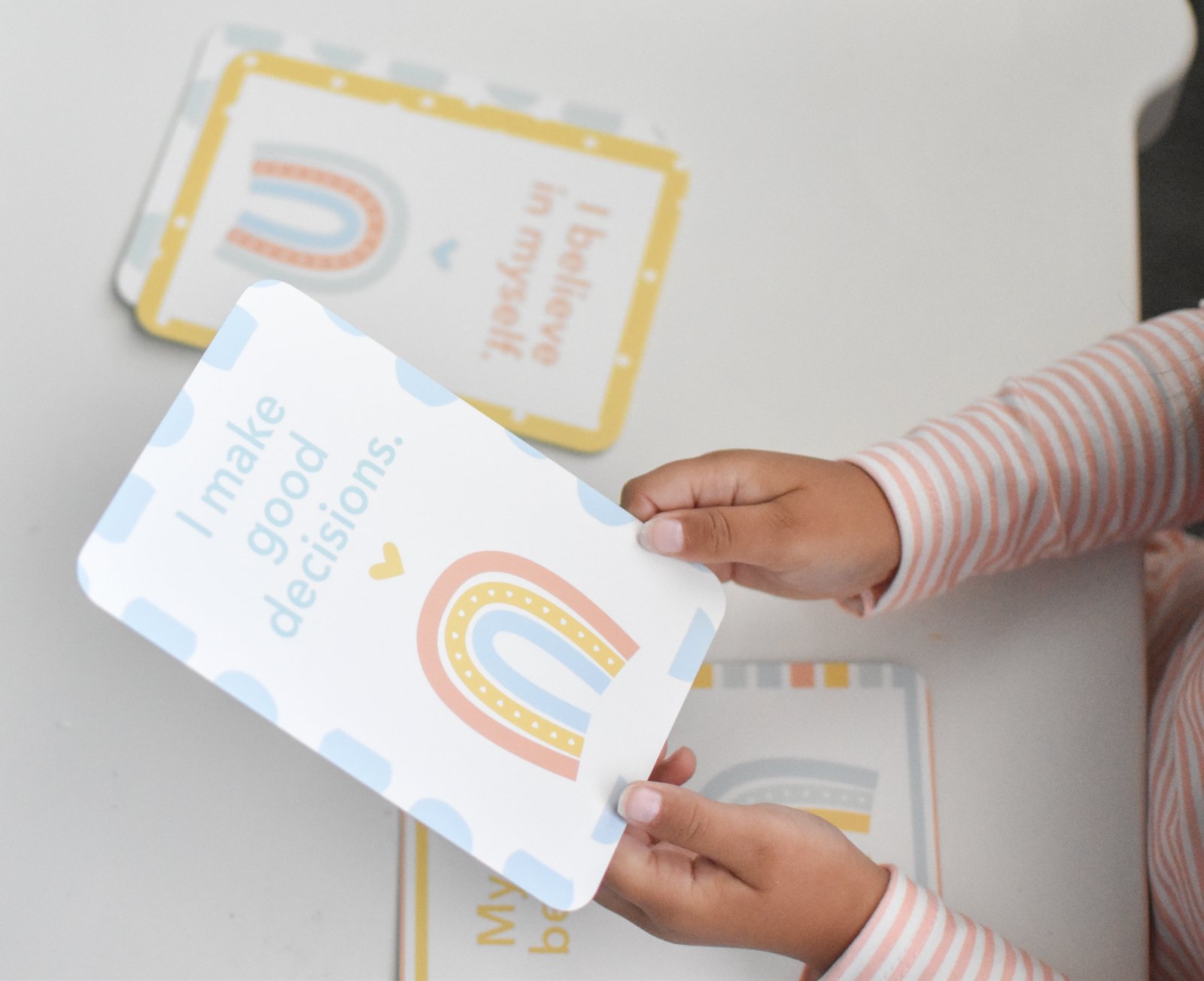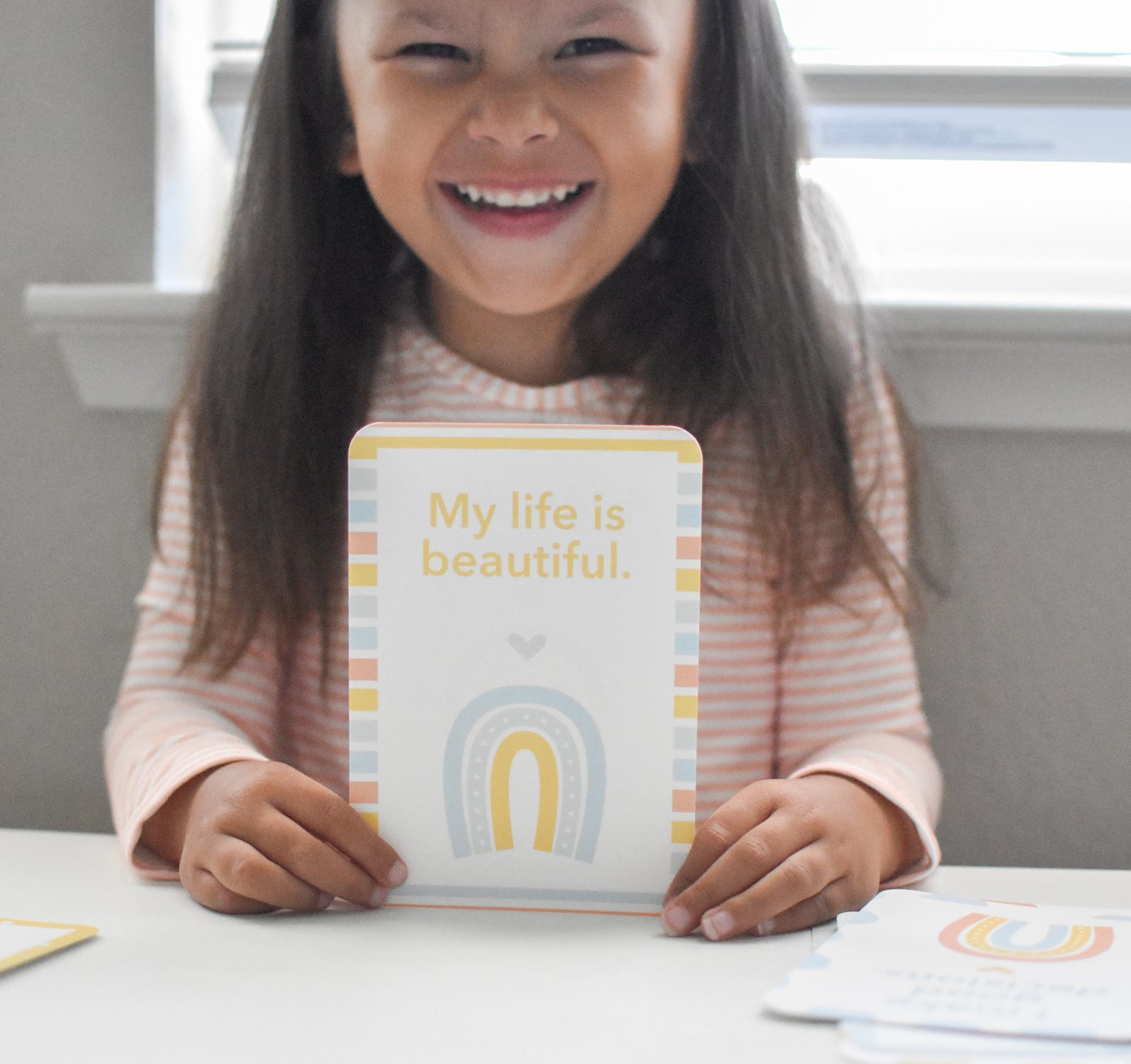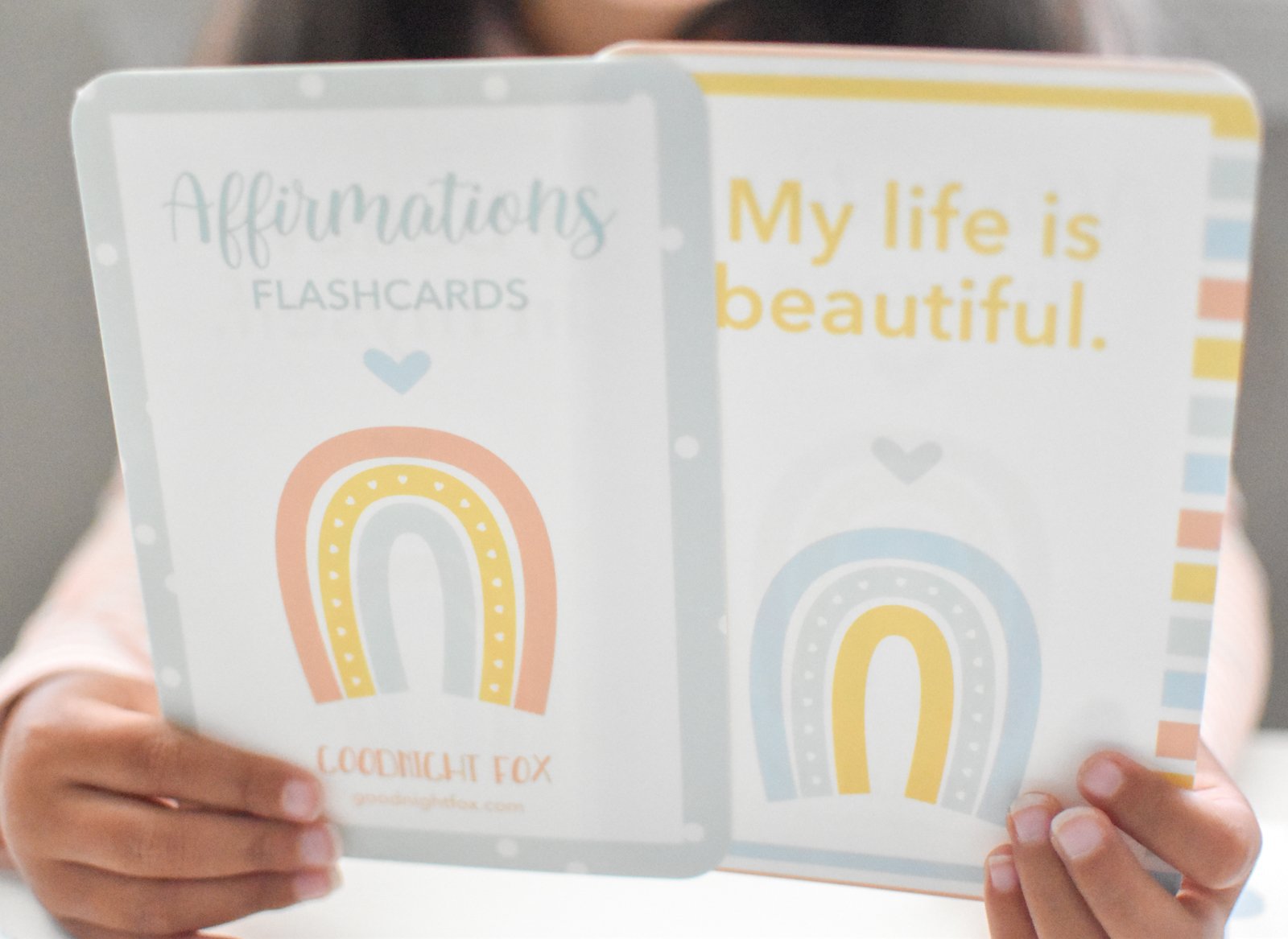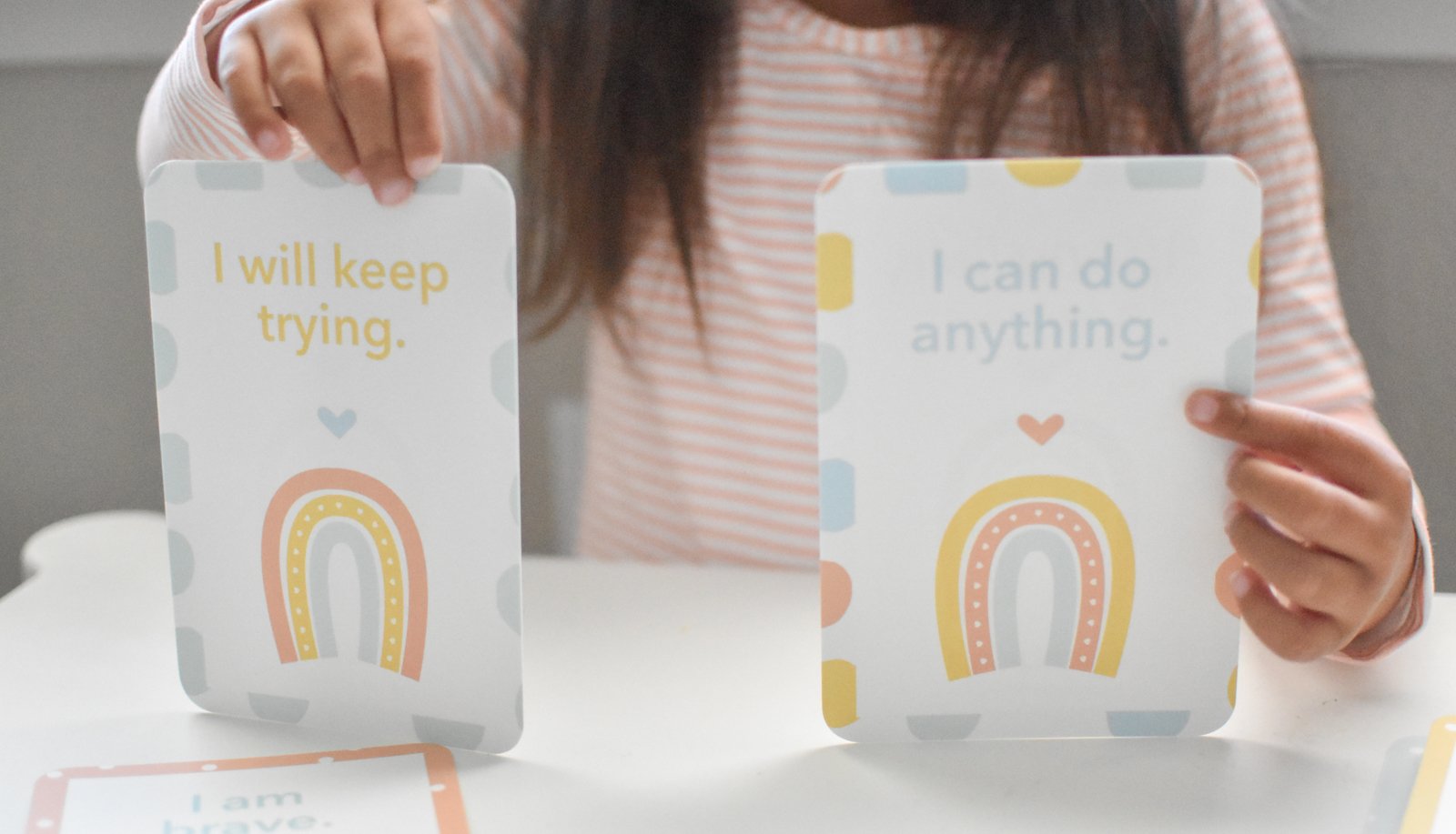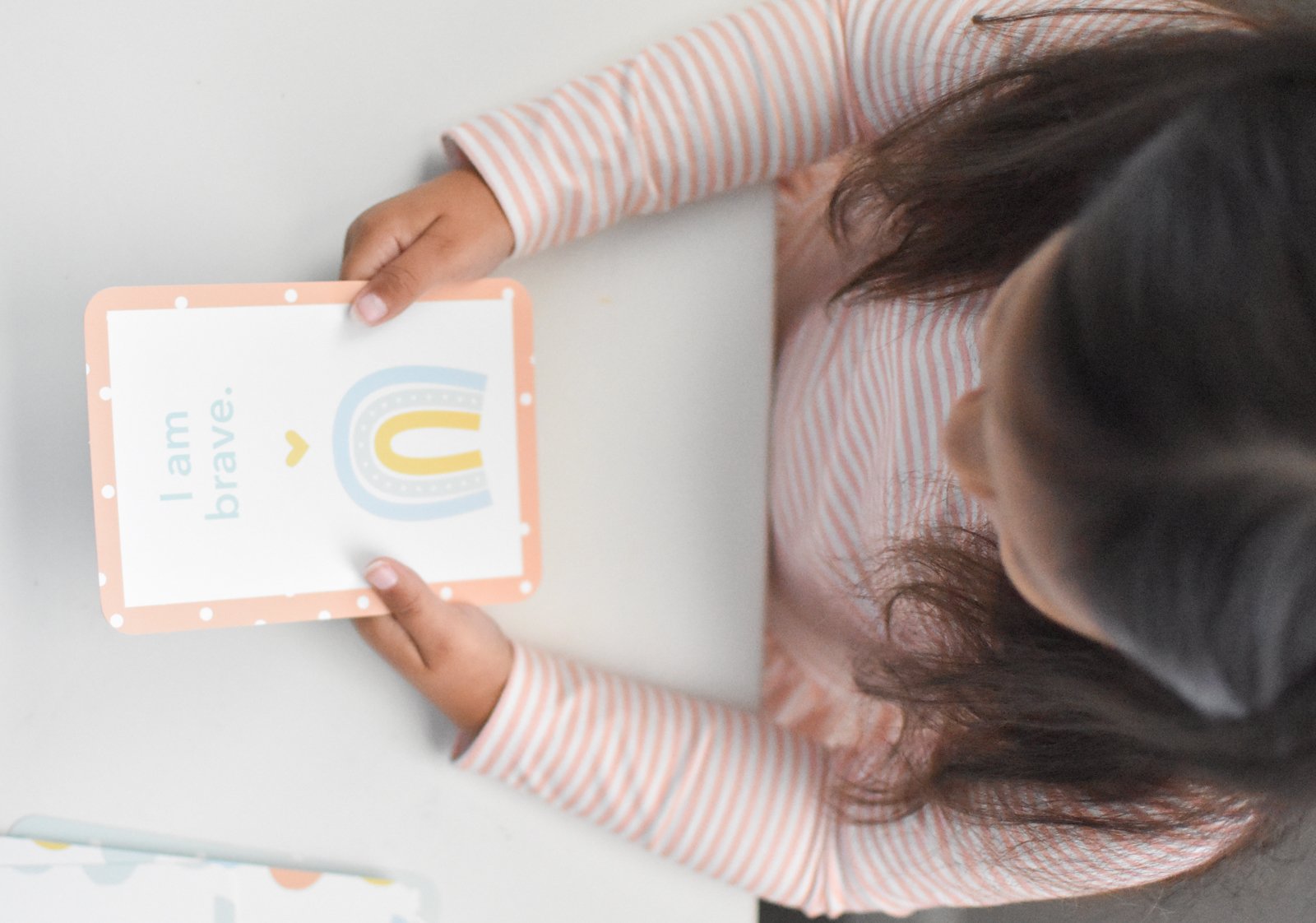In today's fast-paced world, teaching toddlers mindfulness and affirmations from an early age is an essential tool for promoting their emotional well-being and resilience. Mindfulness helps children develop self-awareness, empathy, and concentration, while affirmations foster positive self-beliefs and enhance self-esteem. By combining these practices with sensory bin activities, we can create an engaging and effective learning experience for our little ones.
The Benefits of Mindfulness and Affirmations for Toddlers
Before delving into the sensory bin activities, let's explore the benefits and importance of teaching mindfulness and practicing affirmations during early childhood. According to Slumberkins.com, an esteemed resource in children's emotional development, here are some key advantages:
1. Emotional Regulation: Mindfulness nurtures emotional regulation skills, enabling children to handle their feelings in a healthy and constructive manner.
2. Focus and Attention: Mindfulness exercises help kids develop their concentration and attention span, improving their ability to listen, learn, and engage with the world around them.
3. Empathy and Compassion: By teaching children to observe their thoughts and emotions non-judgmentally, mindfulness cultivates empathy and compassion towards others.
4. Self-Esteem and Resilience: The practice of affirmations encourages positive self-beliefs and self-acceptance, fostering resilience and a healthy sense of self-worth.
Now that we understand the significance of these practices, let's explore three sensory bin activities to pair with mindfulness flashcards and affirmations flashcards.
Sensory Bin Activities for Mindfulness and Affirmations
1. Calming AFFIRMATION Zen Garden
Materials needed:
A shallow box or tray
Sand or rice as the base filler (you can make taste safe sand by blending cheerios or graham crackers)
Small pebbles, smooth stones, or seashells
A mini rake or stick for creating patterns
Pair this sensory bin with the affirmations flashcards. The tactile experience of raking patterns in the sand cultivates focus and brings a sense of calm. As your toddler engages with the Zen Garden, encourage them to take a deep breath in and out, emphasizing peacefulness and relaxation. Have your child repeat after you as you read the affirmations on the cards, promoting positive self-beliefs and self-expression.
2. MINDFULNESS Foam Party
Materials needed:
A large container or bin
Play foam or slime as the sensory filler
This bin pairs perfectly with the mindfulness flashcards. Encourage your child to immerse their hands in the foam or slime while trying out the mindfulness activities on each card. Each activity (such as taking deep breaths, doing jumping jacks, etc.) is uniquely designed for toddlers to practice self-calming and self-regulatory skills. This multi-sensory experience helps reinforce the positive messages and enhances the child's connection to them.
3. Calming Corner Oasis
Materials needed:
A small tent or canopy
Soft blankets or cushions
Calming activities such as coloring books or puzzles
A feather for practicing belly breathing
Fidget tubes/toys
This sensory bin creates a designated calming space for your child. Set up a cozy corner using the tent or canopy, soft blankets, and cushions. Include calming activities like coloring books or puzzles to promote relaxation. Display the emotions spinner and calming techniques poster nearby, encouraging your child to identify their emotions and practice the suggested calming techniques. Use the sensory tubes or fidget toys to practice setting your mind to an activity. Use the stress balls and sensory bottles to occupy your mind. Practice laying on the floor with a feather for belly breathing. The more you and your toddler practice these techniques together, the more they will be able to self-regulate when they’re experiencing big emotions.
Vocabulary Words for Kids Ages 2-6: Mindfulness and Affirmations
1. Calm: A peaceful and relaxed state of mind.
2. Feelings: Emotions or sensations that we experience.
3. Breathe: To inhale and exhale air.
4. Relax: To be free from tension or stress.
5. Mindful: Being aware and paying attention to the present moment.
6. Gratitude: Feeling thankful for the things we have.
7. Focus: To concentrate on one thing at a time.
8. Positivity: A positive and optimistic attitude.
9. Kindness: Being friendly, generous, and considerate towards others.
10. Patience: The ability to wait calmly without getting upset.
11. Peace: A state of harmony and tranquility.
12. Acceptance: Acknowledging and embracing things as they are.
13. Love: A deep affection and care for someone or something.
14. Joy: A feeling of happiness or delight.
15. Energy: The power or strength to do something.
16. Gracious: Being polite and showing kindness.
17. Imaginative: Having a creative and vivid imagination.
18. Courage: The ability to face fears and challenges.
19. Serenity: A state of calmness and peace.
20. Believe: To have confidence and trust in something or someone.
21. Harmony: A pleasant combination of different things.
22. Empathy: The ability to understand and share the feelings of others.
23. Mindset: The way we think or perceive things.
24. Resilience: The capacity to bounce back from difficulties.
25. Self-care: Taking care of oneself through healthy habits and practices.
These vocabulary words can help children develop a positive mindset and cultivate mindfulness at an early age, promoting emotional well-being and self-awareness.
Conclusion
Incorporating mindfulness and affirmations into our toddlers' lives provides them with valuable tools for emotional well-being and resilience. By engaging in sensory bin activities that complement these practices, we make their learning experience more interactive and enjoyable. Whether it's creating patterns in a Zen Garden, exploring affirmations through foam play, or finding solace in a calming corner, these activities empower our little ones to cultivate calmness and cope with big emotions.
Teaching toddler mindfulness and affirmations is a gift that will benefit children throughout their lives. Let's take this opportunity to foster their emotional growth and well-being from an early age.


